GitHub Actions|iOS App CI/CD Workflow Automation for Faster Builds and Deployments
iOS developers struggling with manual build and deployment can automate CI/CD using GitHub Actions to streamline testing and release, achieving faster and more reliable app delivery.
点击这里查看本文章简体中文版本。
點擊這裡查看本文章正體中文版本。
This post was translated with AI assistance — let me know if anything sounds off!
Table of Contents
CI/CD Practical Guide (3): Implementing App iOS CI and CD Workflows with GitHub Actions
iOS App Automation: Complete Guide to Building, Testing, and Deploying with GitHub Actions
Photo by Robs
Preface
The previous article “CI/CD Practical Guide (Part 2): Comprehensive Use and Setup of GitHub Actions and Self-hosted Runner” introduced the basics and workflow of GitHub Actions, how to use your own machine as a Runner, and guided you through three simple automated Actions; this article will focus deeply on building an App (iOS) CI/CD workflow with GitHub Actions in real-world use, walking you step-by-step while supplementing relevant GitHub Actions knowledge.
App CI/CD Workflow Diagram
This article focuses on the GitHub Actions section for building CI/CD. The next article, “CI/CD Practical Guide (Part 4): Using Google Apps Script Web App to Connect with GitHub Actions to Build a Free and Easy Packaging Tool Platform,” will cover the right half, which introduces building a cross-team collaborative packaging platform using Google Apps Script Web App.
Workflow:
GitHub Actions Triggered by Pull Request, Form Submission, or Scheduled Timing
Execute Corresponding Workflow Jobs/Steps
Step Executes the Corresponding Fastlane (iOS) or (Android Gradle) Script
Fastlane Executes Corresponding xcodebuild (iOS) Commands
Get Execution Result
Subsequent Workflow Jobs/Steps Process Results
Completed
GitHub Actions Results Image
First, let’s show the final result to give everyone some motivation to implement!
GitHub Actions x Self-hosted Runner Basics
If you are not yet familiar with GitHub Actions and setting up a Self-hosted Runner, it is highly recommended to first read the previous article “CI/CD Practical Guide (Part 2): Comprehensive Use and Setup of GitHub Actions and Self-hosted Runner” or practice alongside the knowledge from that article.
Implementation begins!
Infra Architecture of the iOS Demo Project
The iOS project content used in this article, including test items, is generated by AI, so there is no need to focus on iOS code details. The discussion will only cover Infra & CI/CD aspects.
The following tools are based on past experience. For new projects, consider using the newer mise and tuist .
Mint
Mint tool helps us unify the management of dependency tool versions (Gemfile can only manage Ruby Gems), such as XCodeGen, SwiftFormat, SwiftLint, Periphery.
…etc
Mintfile:
1
2
3
yonaskolb/Mint@0.17.5
yonaskolb/XcodeGen@2.35.0
nicklockwood/SwiftFormat@0.51.13
Here we only use three.
If it feels too complicated, you can skip it and directly use brew install to install the required tools in the Action Workflow Step.
Bundle
Gemfile:
1
2
3
4
5
6
source 'https://rubygems.org'
gem 'cocoapods', '~>1.16.0'
gem 'fastlane', '~>2.228.0'
plugins_path = File.join(File.dirname(__FILE__), 'Product', 'fastlane', 'Pluginfile')
eval_gemfile(plugins_path) if File.exist?(plugins_path)
Managing Ruby (Gems) dependencies, the two most commonly used tools in iOS projects are cocoapods and fastlane.
Cocoapods
Product/podfile:
1
2
3
4
5
6
platform :ios, '13.0'
use_frameworks!
target 'app-ci-cd-github-actions-demo' do
pod 'SnapKit'
end
Although it has been announced as soon to be deprecated, Cocoapods is still common in older iOS projects. Here, a simple Snapkit demo is added.
XCodeGen
To avoid conflicts caused by changes to .xcodeproj / .xcworkspace during multi-developer collaboration, use Project.yaml to define the XCode Project content uniformly, then generate the Project files locally (do not commit to Git).
Product/project.yaml:
1
2
3
4
5
6
7
8
9
10
11
12
13
14
15
16
17
18
19
20
21
22
23
24
25
26
27
28
29
30
31
32
33
34
35
36
37
38
39
40
41
42
43
44
45
46
47
48
49
50
51
52
53
54
55
56
57
58
59
60
61
62
63
64
65
66
67
68
69
70
71
72
73
74
75
76
77
78
name: app-ci-cd-github-actions-demo
options:
bundleIdPrefix: com.example
deploymentTarget:
iOS: '13.0'
usesTabs: false
indentWidth: 2
tabWidth: 2
configs:
Debug: debug
Release: release
targets:
app-ci-cd-github-actions-demo:
type: application
platform: iOS
sources:
- app-ci-cd-github-actions-demo
resources:
- app-ci-cd-github-actions-demo/Assets.xcassets
- app-ci-cd-github-actions-demo/Base.lproj
info:
path: app-ci-cd-github-actions-demo/Info.plist
properties:
CFBundleIdentifier: $(PRODUCT_BUNDLE_IDENTIFIER)
settings:
base:
PRODUCT_BUNDLE_IDENTIFIER: com.test.appcicdgithubactionsdemo
cocoapods: true
app-ci-cd-github-actions-demoTests:
type: bundle.unit-test
platform: iOS
sources:
- app-ci-cd-github-actions-demoTests
dependencies:
- target: app-ci-cd-github-actions-demo
info:
path: app-ci-cd-github-actions-demoTests/Info.plist
settings:
base:
PRODUCT_BUNDLE_IDENTIFIER: com.test.appcicdgithubactionsdemo.tests
app-ci-cd-github-actions-demoUITests:
type: bundle.ui-testing
platform: iOS
sources:
- app-ci-cd-github-actions-demoUITests
dependencies:
- target: app-ci-cd-github-actions-demo
info:
path: app-ci-cd-github-actions-demoUITests/Info.plist
settings:
base:
PRODUCT_BUNDLE_IDENTIFIER: com.test.appcicdgithubactionsdemo.uitests
app-ci-cd-github-actions-demoSnapshotTests:
type: bundle.unit-test
platform: iOS
sources:
- path: app-ci-cd-github-actions-demoSnapshotTests
excludes:
- "**/__Snapshots__/**"
dependencies:
- target: app-ci-cd-github-actions-demo
- product: SnapshotTesting
package: SnapshotTesting
info:
path: app-ci-cd-github-actions-demoSnapshotTests/Info.plist
settings:
base:
PRODUCT_BUNDLE_IDENTIFIER: com.test.appcicdgithubactionsdemo.snapshottests
packages:
SnapshotTesting:
url: https://github.com/pointfreeco/swift-snapshot-testing
from: 1.18.4
SnapshotTesting: Managing with Swift Package Manager.
Fastlane
Encapsulating complex steps such as xcodebuild commands, integrating with App Store Connect API, Firebase API, and other services.
Product/fastlane/Fastfile:
1
2
3
4
5
6
7
8
9
10
11
12
13
14
15
16
17
18
19
20
21
22
23
24
25
26
27
28
29
30
31
32
33
34
35
36
37
38
39
40
41
42
43
44
45
46
47
48
49
50
51
52
53
54
55
56
57
58
59
60
61
62
63
64
65
66
67
68
69
70
71
default_platform(:ios)
platform :ios do
desc "Run all tests (Unit Tests + UI Tests)"
lane :run_all_tests do \|options\|
device = options[:device]
scan(
scheme: "app-ci-cd-github-actions-demo",
device: device,
clean: true,
output_directory: "fastlane/test_output",
output_types: "junit"
)
end
desc "Run only Unit Tests"
lane :run_unit_tests do \|options\|
device = options[:device]
scan(
scheme: "app-ci-cd-github-actions-demo",
device: device,
clean: true,
only_testing: [
"app-ci-cd-github-actions-demoTests"
],
output_directory: "fastlane/test_output",
output_types: "junit"
)
end
desc "Build and upload to Firebase App Distribution"
lane :beta do \|options\|
if options[:version_number] && options[:version_number].to_s.strip != ""
increment_version_number(version_number: options[:version_number])
end
if options[:build_number] && options[:build_number].to_s.strip != ""
increment_build_number(build_number: options[:build_number])
end
update_code_signing_settings(
use_automatic_signing: false,
path: "app-ci-cd-github-actions-demo.xcodeproj",
team_id: ENV['TEAM_ID'],
code_sign_identity: "iPhone Developer",
sdk: "iphoneos*",
profile_name: "cicd"
)
gym(
scheme: "app-ci-cd-github-actions-demo",
clean: true,
export_method: "development",
output_directory: "fastlane/build",
output_name: "app-ci-cd-github-actions-demo.ipa",
export_options: {
provisioningProfiles: {
"com.test.appcicdgithubactionsdemo" => "cicd",
},
}
)
firebase_app_distribution(
app: "1:127683058219:ios:98896929fa131c7a80686e",
firebase_cli_token: ENV["FIREBASE_CLI_TOKEN"],
release_notes: options[:release_notes] \|\| "New beta build"
)
end
end
Note: provisioningProfiles and profile_name correspond to the Profiles certificate names in App Developer. (If using match, these do not need to be specified.)
Fastlane is an essential part of iOS CI/CD, allowing you to quickly develop the actual CI/CD execution steps by using its pre-packaged methods; we only need to focus on the overall script design without dealing with complex API integrations or command writing.
For example: Fastlane only requires writing “scan(xxx)” to run tests, while using xcodebuild needs “xcodebuild -workspace ./xxx.xcworkspace -scheme xxx -derivedDataPath xxx ‘platform=iOS Simulator,id=xxx’ clean build test”. Packaging and deployment are even more troublesome, as you need to integrate with App Store Connect/Firebase API yourself, and the key authentication alone requires writing over 10 lines of code.
The demo project has only three lanes:
run_all_tests: Run all types of tests (Snapshot + Unit)
run_unit_tests: Run only unit tests (Unit)
beta: Packaging and deploying to Firebase App Distribution
Fastlane — Match
Due to Demo project limitations, Match was not used here to manage the team’s development and deployment certificates. However, it is recommended to use Match to manage all development and deployment certificates for the team, making control and updates easier and more unified.
With Match, you can use commands like
match alldirectly in the project setup step to install all the development certificates you need with one click.
- Fastlane Match uses another private repo to manage certificate keys. In GitHub Actions, you need to set up the SSH Agent to clone the other private repo.
(Please refer to the notes at the end)
— — —
Makefile
Makefile
Unify the development side and CI/CD to use Makefile for executing commands, making it easier to package the same environment, paths, and operations.
A classic example is that some people use the locally installed
pod install, while others use the Bundler-managedbundle exec pod install. Differences may arise if the versions differ.
If you find it too complicated and prefer not to use it, you can simply write the commands to execute directly in the Action Workflow Step.
Makefile:
1
2
3
4
5
6
7
8
9
10
11
12
13
14
15
16
17
18
19
20
21
22
23
24
25
26
27
28
29
30
31
32
33
34
35
36
37
38
39
40
41
42
43
44
45
46
47
48
49
50
51
52
53
54
55
56
57
58
59
60
#!make
PRODUCT_FOLDER = ./Product/
SHELL := /bin/zsh
.DEFAULT_GOAL := install
MINT_DIRECTORY := ./mint/
export MINT_PATH=$(MINT_DIRECTORY)
## 👇 Help function
.PHONY: help
help:
@echo ""
@echo "📖 Available commands:"
@grep -E '^[a-zA-Z_-]+:.*?## .*$$' $(MAKEFILE_LIST) \| \
awk 'BEGIN {FS = ":.*?## "}; {printf " \033[36m%-20s\033[0m %s\n", $$1, $$2}'
@echo ""
## Setup
.PHONY: setup
setup: check-mint ## Install Ruby and Mint dependencies
@echo "🔨 Installing Ruby dependencies..."
bundle config set path 'vendor/bundle'
bundle install
@echo "🔨 Installing Mint dependencies..."
mint bootstrap
## Install
.PHONY: install
install: XcodeGen PodInstall ## Run XcodeGen and CocoaPods install
.PHONY: XcodeGen
XcodeGen: check-mint ## Generate .xcodeproj using XcodeGen
@echo "🔨 Execute XcodeGen"
cd $(PRODUCT_FOLDER) && \
mint run yonaskolb/XcodeGen --quiet
.PHONY: PodInstall
PodInstall: ## Install CocoaPods dependencies
@echo "📦 Installing CocoaPods dependencies..."
cd $(PRODUCT_FOLDER) && \
bundle exec pod install
### Mint
check-mint: check-brew ## Check if Mint is installed, install if missing
@if ! command -v mint &> /dev/null; then \
echo "🔨 Installing mint..."; \
brew install mint; \
fi
### Brew
check-brew: ## Check if Homebrew is installed, install if missing
@if ! command -v brew &> /dev/null; then \
echo "🔨 Installing Homebrew..."; \
/bin/bash -c "$$(curl -fsSL https://raw.githubusercontent.com/Homebrew/install/HEAD/install.sh)"; \
fi
## Format only git swift files
.PHONY: format
format: check-mint ## Format all Swift files under Product/
mint run swiftformat $(PRODUCT_FOLDER)
To avoid contaminating the entire system or other projects, we try to set the paths of Dependency packages (e.g. mint, bundle, etc.) within the project directory (combined with .gitignore exclusion).
1
2
3
4
5
6
7
8
9
10
11
12
13
├── mint (Mint dependencies)
│ └── packages
├── Product
│ ├── app-ci-cd-github-actions-demo
│ ├── app-ci-cd-github-actions-demo.xcodeproj
│ ├── app-ci-cd-github-actions-demo.xcworkspace
│ ├── app-ci-cd-github-actions-demoSnapshotTests
│ ├── app-ci-cd-github-actions-demoTests
│ ├── app-ci-cd-github-actions-demoUITests
│ ├── fastlane
│ └── Pods (Cocoapods dependencies)
└── vendor (Bundle dependencies)
└── bundle
Please provide the Markdown paragraph you want me to translate into English.
Unified Project Setup Steps Using Makefine:
git clone repocd ./repomake setup
Install necessary tool dependencies (brew, mint, bundle, xcodegen, swiftformat, …)make install
Generate the project (run pod install, xcodegen)Completed
Open and Run the Project
Whether it’s CI/CD or onboarding new members, build the project following the above steps.
This GitHub Actions CI/CD Example
This article introduces three GitHub Actions CI/CD workflow examples. You can also refer to these steps to build CI/CD workflows that fit your team’s needs.
CI — Run Unit Tests on Pull Request Submission
CD — Packaging + Deploying to Firebase App Distribution
CI + CD — Nightly Build: Execute Snapshot + Unit Tests + Packaging + Deploy to Firebase App Distribution
Due to demo limitations, this article only covers integration and deployment to Firebase App Distribution. Packaging for Testflight or the App Store follows the same steps, with differences only in the Fastlane scripts. Feel free to adapt as needed.
CI — Run Unit Tests on Pull Request
Process
The Develop branch cannot be pushed to directly; updates must be made via Pull Request. All Pull Requests require review approval and passing unit tests before merging. Any new commit push will trigger retesting.
CI-Testing.yml
Repo → Actions → New workflow → set up a workflow yourself.
1
2
3
4
5
6
7
8
9
10
11
12
13
14
15
16
17
18
19
20
21
22
23
24
25
26
27
28
29
30
31
32
33
34
35
36
37
38
39
40
41
42
43
44
45
46
47
48
49
50
51
52
53
54
55
56
57
58
59
60
61
62
63
64
65
66
67
68
69
70
71
72
73
74
75
76
77
78
79
80
81
82
83
84
85
86
87
88
89
90
91
92
93
94
95
96
97
98
99
100
101
102
103
104
105
106
107
108
109
110
111
112
113
114
115
116
117
118
119
120
121
122
123
124
125
126
127
128
129
130
131
132
133
134
135
136
137
138
139
140
141
142
143
144
145
146
147
148
149
150
151
152
153
154
155
156
157
158
159
160
161
162
163
164
165
166
167
168
169
170
171
172
173
174
175
176
177
178
179
180
181
182
183
184
185
186
187
188
189
190
191
192
193
194
195
196
197
198
199
200
201
202
203
204
205
206
207
208
209
210
211
212
213
214
215
216
217
218
219
220
221
222
223
224
225
226
227
228
229
230
231
232
233
234
235
236
237
238
239
240
241
242
243
244
245
246
247
248
249
250
251
252
253
254
255
256
257
258
259
260
261
262
263
264
265
266
267
268
269
270
271
272
273
274
275
276
277
278
279
280
281
282
283
284
285
286
287
288
289
290
291
292
293
294
295
296
297
298
299
300
301
# Workflow(Action) Name
name: CI-Testing
# Actions Log Title
run-name: "[CI-Testing] ${{ github.event.pull_request.title \|\| github.ref }}"
# Cancel running jobs in the same Concurrency Group if a new job starts
# For example, if a commit push triggers a job that hasn't started yet and another commit push happens, the previous job will be canceled
concurrency:
group: ${{ github.workflow }}-${{ github.event_name }}-${{ github.event.pull_request.number \|\| github.ref }}
cancel-in-progress: true
# Trigger events
on:
# PR events
pull_request:
# PR opened, reopened, or new push commit
types: [opened, synchronize, reopened]
# Manual trigger via form
workflow_dispatch:
# Form inputs
inputs:
# Test Fastlane Lane to run
TEST_LANE:
description: 'Test Lane'
default: 'run_unit_tests'
type: choice
options:
- run_unit_tests
- run_all_tests
# Triggered by other workflows
# Used by Nightly Build
workflow_call:
# Form inputs
inputs:
# Test Fastlane Lane to run
TEST_LANE:
description: 'Test Lane'
default: 'run_unit_tests'
# workflow_call inputs do not support choice
type: string
BRANCH:
description: 'Branch'
type: string
# Jobs
# Jobs run concurrently
jobs:
# Job ID
testing:
# Job name (optional, better readability in logs)
name: Testing
# Runner Label - use GitHub Hosted Runner macos-15 to run the job
# Note: This project is a Public Repo and can use unlimited free minutes
# Note: This project is a Public Repo and can use unlimited free minutes
# Note: This project is a Public Repo and can use unlimited free minutes
# For Private Repo, usage is metered and macOS runners are the most expensive (10x),
# running 10 times may reach the 2,000 minutes free limit
# Self-hosted Runner is recommended
runs-on: macos-15
# Set maximum timeout to avoid endless waiting in abnormal situations
timeout-minutes: 30
# use zsh
# Optional, default shell is bash but I prefer zsh
defaults:
run:
shell: zsh {0}
# Steps
# Steps run sequentially
steps:
# git clone the current repo & checkout the branch to run
- name: Checkout repository
uses: actions/checkout@v3
with:
# Git Large File Storage, not needed in our test environment
# default: false
lfs: false
# Checkout specified branch if provided, otherwise default (current branch)
# On schedule events can only run on main branch, so to do Nightly Build on master branch, specify branch here
# e.g. on: schedule -> main branch, Nightly Build on master branch
ref: ${{ github.event.inputs.BRANCH \|\| '' }}
# ========== Env Setup Steps ==========
# Read project specified XCode version
# Later we manually specify XCode_x.x.x.app instead of using xcversion,
# because xcversion is deprecated and unstable.
- name: Read .xcode-version
id: read_xcode_version
run: \|
XCODE_VERSION=$(cat .xcode-version)
echo "XCODE_VERSION: ${XCODE_VERSION}"
echo "xcode_version=${XCODE_VERSION}" >> $GITHUB_OUTPUT
# You can also set global XCode version here to avoid specifying DEVELOPER_DIR later
# But this requires sudo privileges; for self-hosted runners ensure the runner has sudo rights
# sudo xcode-select -s "/Applications/Xcode_${XCODE_VERSION}.app/Contents/Developer"
# Read project specified Ruby version
- name: Read .ruby-version
id: read_ruby_version
run: \|
RUBY_VERSION=$(cat .ruby-version)
echo "RUBY_VERSION: ${RUBY_VERSION}"
echo "ruby_version=${RUBY_VERSION}" >> $GITHUB_OUTPUT
# Install or set Runner Ruby version to project specified version
- name: Set up Ruby
uses: ruby/setup-ruby@v1
with:
ruby-version: "${{ steps.read_ruby_version.outputs.ruby_version }}"
# Optional, because on self-hosted runners running multiple runners on the same machine,
# CocoaPods repos share the directory causing rare conflicts when pod install runs concurrently
# GitHub Hosted Runner does not need this setting
# - name: Change Cocoapods Repos Folder
# if: contains(runner.labels, 'self-hosted')
# run: \|
# # Each runner uses own .cocoapods folder to avoid conflicts
# mkdir -p "$HOME/.cocoapods-${{ env.RUNNER_NAME }}/"
# export CP_HOME_DIR="$HOME/.cocoapods-${{ env.RUNNER_NAME }}"
# rm -f "$HOME/.cocoapods-${{ env.RUNNER_NAME }}/repos/cocoapods/.git/index.lock"
# ========== Cache Setting Steps ==========
# Note: Even self-hosted runners use cloud cache which counts usage
# Rules: auto delete if not hit for 7 days, max 10 GB per cache, only cache on successful action
# Public Repo: free unlimited
# Private Repo: starts at 5 GB
# Self-hosted can implement own cache & restore strategies via scripts or other tools
# Bundle Cache (Gemfile)
# Matches Makefile specified Bundle install path ./vendor
- name: Cache Bundle
uses: actions/cache@v3
with:
path: \|
./vendor
key: ${{ runner.os }}-bundle-${{ hashFiles('Gemfile.lock') }}
restore-keys: \|
${{ runner.os }}-bundle-
# CocoaPods Cache (Podfile)
# Default path is project/Pods
- name: Cache CocoaPods
uses: actions/cache@v3
with:
path: \|
./Product/Pods
key: ${{ runner.os }}-cocoapods-${{ hashFiles('Product/Podfile.lock') }}
restore-keys: \|
${{ runner.os }}-cocoapods-
# Mint cache
# Matches Makefile specified Mint install path ./mint
- name: Cache Mint
uses: actions/cache@v3
with:
path: ./mint
key: ${{ runner.os }}-mint-${{ hashFiles('Mintfile') }}
restore-keys: \|
${{ runner.os }}-mint-
# ====================
# Project Setup & Dependency Installation
- name: Setup & Install Dependency
run: \|
# Run Makefile wrapped Setup commands, roughly:
# brew install mint
# bundle config set path 'vendor/bundle'
# bundle install
# mint bootstrap
# ...
make setup
# Run Makefile wrapped Install commands, roughly:
# mint run yonaskolb/XcodeGen --quiet
# bundle exec pod install
# ...
make install
# Run Fastlane Unit Test Lane
- name: Run Tests
id: testing
# Set working directory so no need to cd later
working-directory: ./Product/
env:
# Test plan: run all tests or only unit tests
# For PR trigger use run_unit_tests, otherwise use inputs.TEST_LANE or default run_all_tests
TEST_LANE: ${{ github.event_name == 'pull_request' && 'run_unit_tests' \|\| github.event.inputs.TEST_LANE \|\| 'run_all_tests' }}
# Specify XCode version for this job
DEVELOPER_DIR: "/Applications/Xcode_${{ steps.read_xcode_version.outputs.xcode_version }}.app/Contents/Developer"
# Repo -> Settings -> Actions secrets and variables -> variables
# Simulator name
SIMULATOR_NAME: ${{ vars.SIMULATOR_NAME }}
# Simulator iOS version
SIMULATOR_IOS_VERSION: ${{ vars.SIMULATOR_IOS_VERSION }}
# Current Runner name
RUNNER_NAME: ${{ runner.name }}
# Increase XCodebuild timeout and retry count
# Machines with heavy load may fail after 3 tries
FASTLANE_XCODEBUILD_SETTINGS_TIMEOUT: 60
FASTLANE_XCODEBUILD_SETTINGS_RETRIES: 10
run: \|
# On self-hosted runners running multiple runners on one machine,
# simulator contention may occur (explained later)
# To avoid this, name simulators after runner name so each runner has its own simulator,
# preventing conflicts and test failures
# e.g. bundle exec fastlane run_unit_tests device:"${RUNNER_NAME} (${SIMULATOR_IOS_VERSION})"
# Here using GitHub Hosted Runner so no issue, use device:"${SIMULATOR_NAME} (${SIMULATOR_IOS_VERSION})"
# Do not exit immediately on error and write all output to temp/testing_output.txt
# Later analyze file to distinguish Build Failed or Test Failed and comment different messages to PR
set +e
# EXIT_CODE stores exit code of execution.
# 0 = OK
# 1 = exit
EXIT_CODE=0
# Write all output to file
bundle exec fastlane ${TEST_LANE} device:"${SIMULATOR_NAME} (${SIMULATOR_IOS_VERSION})" \| tee "$RUNNER_TEMP/testing_output.txt"
# If EXIT_CODE is 0, assign ${pipestatus[1]} to EXIT_CODE
[[ $EXIT_CODE -eq 0 ]] && EXIT_CODE=${pipestatus[1]}
# Restore exit on error
set -e
# Check Testing Output
# If output contains "Error building", set is_build_error=true for Actions env var, build failed
# If output contains "Tests have failed", set is_test_error=true for Actions env var, test failed
if grep -q "Error building" "$RUNNER_TEMP/testing_output.txt"; then
echo "is_build_error=true" >> $GITHUB_OUTPUT
echo "❌ Detected Build Error"
elif grep -q "Tests have failed" "$RUNNER_TEMP/testing_output.txt"; then
echo "is_test_error=true" >> $GITHUB_OUTPUT
echo "❌ Detected Test Error"
fi
# Restore Exit Code Output
exit $EXIT_CODE
# ========== Handle Result Steps ==========
# Parse *.junit test report, mark results, comment if PR
- name: Publish Test Report
# Reuse existing .junit Parser Action: https://github.com/mikepenz/action-junit-report
uses: mikepenz/action-junit-report@v5
# if:
# previous step (Testing) success or
# previous step (Testing) failed and is_test_error (skip if build failed)
if: ${{ (failure() && steps.testing.outputs.is_test_error == 'true') \|\| success() }}
with:
check_name: "Testing Report"
comment: true
updateComment: false
require_tests: true
detailed_summary: true
report_paths: "./Product/fastlane/test_output/*.junit"
# Build failure comment
- name: Build Failure Comment
# if:
# previous step (Testing) failed and is_build_error and has PR Number
if: ${{ failure() && steps.testing.outputs.is_build_error == 'true' && github.event.pull_request.number }}
uses: actions/github-script@v6
env:
action_url: "${{ github.server_url }}/${{ github.repository }}/actions/runs/${{ github.run_id }}/attempts/${{ github.run_attempt }}"
with:
script: \|
const action_url = process.env.action_url
const pullRequest = context.payload.pull_request \|\| {}
const commitSha = pullRequest.head?.sha \|\| context.sha
const creator = pullRequest.user?.login \|\| context.actor
const commentBody = [
`# Project or Test Build Failed ❌`,
`Please ensure your Pull Request can compile and run tests correctly.`,
``,
`🔗 **Action**: [View Workflow Run](${action_url})`,
`📝 **Commit**: ${commitSha}`,
`👤 **Author**: @${creator}`
].join('\n')
await github.rest.issues.createComment({
owner: context.repo.owner,
repo: context.repo.repo,
issue_number: context.payload.pull_request.number,
body: commentBody
})
Technical Highlights:
runs-on: It is recommended to use a self-hosted Runner, as GitHub Hosted Runner macOS is very expensive.
Manually read the
.xcode-versionfile to get the specified XCode version and set theDEVELOPER_DIRenvironment variable in steps that require a specific XCode version. This allows easy XCode switching without using Sudo.Cache: Can speed up dependency installation, but note that even self-hosted Runners use GitHub Cloud Cache and are subject to billing limits.
Use
set +eto prevent the script from exiting immediately on command failure, redirect all output to a file, and read the file to determine if it is a Build Failed or Test Failed; otherwise, the message will always be Test Failed.
You can also extend this to detect other errors, for example:Underlying Error: Unable to boot the Simulator.Simulator failed to start, please try again.Checkout Code accepts a specified branch: Since the
on: scheduleevent can only be triggered on the main (Default Branch), if we want the schedule to operate on another branch, we need to specify the branch.Specifying the .cocoapods Repo path is optional. Previously, when using self-hosted runners on the same machine, two runners got stuck at pod install because both were operating on the .cocoapods Repo simultaneously, causing a git lock.
(However, the chance of this happening is very low.)If you have a Private Pods Repo that requires setting up an SSH Agent to have permission to clone.
(Please refer to the supplementary notes at the end)Remember to add in Repo -> Settings -> Actions secrets and variables -> variables:
SIMULATOR_IOS_VERSIONSimulator iOS version
SIMULATOR_NAMESimulator name
Commit files to the Repo main branch and manually trigger a verification to check correctness:
Continue with the correct settings.
GitHub Workflow Setup
Repo → Settings → Rules → Rulesets。
Ruleset Name: Ruleset Name
Enforcement status: Enable/Disable this rule restriction
Target branches: The target Base branches. Setting the Default Branch means all branches intended to merge into main or develop are subject to this rule.
Bypass list: Specific identities or Teams can be exempted from this restriction
Branch rules:
Restrict deletions: Prohibit branch deletions
Require a pull request before merging: Only allow merging through PR
Required approvals: Limit the number of required approvalsRequire status checks to pass: Restrict which checks must pass before merging
Click + Add checks, enterTesting, and select the one with the GitHub Actions icon.
There is a small issue here: if Suggestions cannot findTesting, you need to go back to Actions and trigger it first (try opening a PR) to succeed once, then it will appear here.
- Block force pushes: Disable Force Push
After saving and confirming the Enforcement status is Active, the rule will take effect.
After everything is set, open a PR to test it:
- Checks show CI-Testing (Required), Merging is blocked, and At least X approving review is required by reviewers with write access. This means the setup is successful.
If the project build fails (Build Failed), it will Comment:
If the project builds successfully but the test cases fail (Test Failed), it will Comment:
If the project build and test are successful (Test Success), it will Comment:
After completing Review Approve + Check tests successfully:
Then you can merge the PR.
- If a new commit is pushed, the checks will automatically rerun.
Full Code: CI-Testing.yml
Auto-merge:
Additionally, you can also open Repo Settings → General → Pull Request and enable:
Automatically delete head branches: Automatically delete branches after merging PRs
Allow Auto-merge: When checks pass and the required approvals are met, the PR will be merged automatically.
The Enable auto-merge button only appears when conditions are set and the current conditions do not yet allow merging.
CD — Packaging + Deployment to Firebase App Distribution
Process
Using GitHub Actions form to trigger packaging tasks, you can specify the version number and Release Notes. After packaging, the app will be automatically uploaded to Firebase App Distribution for the team to download and test.
CD-Deploy.yml
Repo → Actions → New workflow → set up a workflow yourself.
1
2
3
4
5
6
7
8
9
10
11
12
13
14
15
16
17
18
19
20
21
22
23
24
25
26
27
28
29
30
31
32
33
34
35
36
37
38
39
40
41
42
43
44
45
46
47
48
49
50
51
52
53
54
55
56
57
58
59
60
61
62
63
64
65
66
67
68
69
70
71
72
73
74
75
76
77
78
79
80
81
82
83
84
85
86
87
88
89
90
91
92
93
94
95
96
97
98
99
100
101
102
103
104
105
106
107
108
109
110
111
112
113
114
115
116
117
118
119
120
121
122
123
124
125
126
127
128
129
130
131
132
133
134
135
136
137
138
139
140
141
142
143
144
145
146
147
148
149
150
151
152
153
154
155
156
157
158
159
160
161
162
163
164
165
166
167
168
169
170
171
172
173
174
175
176
177
178
179
180
181
182
183
184
185
186
187
188
189
190
191
192
193
194
195
196
197
198
199
200
201
202
203
204
205
206
207
208
209
210
211
212
213
214
215
216
217
218
219
220
221
222
223
224
225
226
227
228
229
230
231
232
233
234
235
236
237
238
239
240
241
242
243
244
245
246
247
248
249
250
251
252
253
254
255
256
257
258
259
260
261
262
263
264
265
266
267
268
269
270
271
272
273
274
275
276
277
278
279
280
281
282
283
284
285
286
287
288
289
290
291
292
293
294
295
296
297
298
299
300
301
302
303
304
305
306
307
308
309
310
311
312
313
314
315
316
317
318
319
# Workflow(Action) name
name: CD-Deploy
# Actions Log title
run-name: "[CD-Deploy] ${{ github.ref }}"
# Cancel in-progress jobs in the same concurrency group if a new job starts
# For example, repeated triggers of the same branch build job will cancel the previous one
concurrency:
group: ${{ github.workflow }}-${{ github.event_name }}-${{ github.ref }}
cancel-in-progress: true
# Trigger events
on:
# Manual form trigger
workflow_dispatch:
# Form inputs
inputs:
# App version number
VERSION_NUMBER:
description: 'Version Number of the app (e.g., 1.0.0). Auto-detect from the Xcode project if left blank.'
required: false
type: string
# App build number
BUILD_NUMBER:
description: 'Build number of the app (e.g., 1). Will use a timestamp if left blank.'
required: false
type: string
# App release note
RELEASE_NOTE:
description: 'Release notes of the deployment.'
required: false
type: string
# Other workflows calling this workflow
# Used by Nightly Build
workflow_call:
inputs:
# App version number
VERSION_NUMBER:
description: 'Version Number of the app (e.g., 1.0.0). Auto-detect from the Xcode project if left blank.'
required: false
type: string
# App build number
BUILD_NUMBER:
description: 'Build number of the app (e.g., 1). Will use a timestamp if left blank.'
required: false
type: string
# App release note
RELEASE_NOTE:
description: 'Release notes of the deployment.'
required: false
type: string
BRANCH:
description: 'Branch'
type: string
# Define global static variables
env:
APP_STORE_CONNECT_API_KEY_FILE_NAME: "app_store_connect_api_key.json"
# Jobs
# Jobs run concurrently
jobs:
# Job ID
deploy:
# Job name (optional, better readability in logs)
name: Deploy - Firebase App Distribution
# Runner label - use GitHub Hosted Runner macos-15 to run the job
# Note: This project is a Public Repo and can use unlimited free minutes
# Note: This project is a Public Repo and can use unlimited free minutes
# Note: This project is a Public Repo and can use unlimited free minutes
# For Private Repos, usage is billed; macOS runners are the most expensive (10x),
# running 10 times may reach the 2,000 free minutes limit
# Self-hosted Runner is recommended
runs-on: macos-15
# Set maximum timeout to prevent endless waiting on errors
timeout-minutes: 30
# use zsh
# Optional, just my preference; default is bash
defaults:
run:
shell: zsh {0}
# Job steps
# Steps run sequentially
steps:
# git clone current repo & checkout to the running branch
- name: Checkout repository
uses: actions/checkout@v3
with:
# Git Large File Storage, not needed for our test environment
# default: false
lfs: false
# Checkout specified branch if given; otherwise use default (current branch)
# Because on: schedule events run only on main branch, to do Nightly Build etc. you need to specify branch
# e.g. on: schedule -> main branch, Nightly Build master branch
ref: ${{ github.event.inputs.BRANCH \|\| '' }}
# ========== Certificates Steps ==========
# Recommended to use Fastlane - Match to manage development certificates and run match in lane directly
# Match uses a private repo to manage certificates, but you need to set up SSH Agent to have permission to git clone the private repo
# ref: https://stackoverflow.com/questions/57612428/cloning-private-github-repository-within-organisation-in-actions
#
#
# --- Below is the approach without using Fastlane - Match, directly download & import certificates to Runner ---
# ref: https://docs.github.com/en/actions/how-tos/use-cases-and-examples/deploying/installing-an-apple-certificate-on-macos-runners-for-xcode-development
#
# GitHub Actions Secrets cannot store files, so all certificates must be converted to Base64 encoded text stored in Secrets
# In the GitHub Actions step, decode and write to TEMP files dynamically and move to correct locations for system use
# See article for other setup details
#
- name: Install the Apple certificate and provisioning profile
env:
BUILD_CERTIFICATE_BASE64: ${{ secrets.BUILD_CERTIFICATE_BASE64 }}
P12_PASSWORD: ${{ secrets.BUILD_CERTIFICATE_P12_PASSWORD }}
BUILD_PROVISION_PROFILE_BASE64: ${{ secrets.BUILD_PROVISION_PROFILE_BASE64 }}
# GitHub Hosted Runner is a custom string
# Self-hosted Runner is machine login password
KEYCHAIN_PASSWORD: ${{ secrets.KEYCHAIN_PASSWORD }}
run: \|
# create variables
CERTIFICATE_PATH=$RUNNER_TEMP/build_certificate.p12
PP_PATH=$RUNNER_TEMP/build_pp.mobileprovision
KEYCHAIN_PATH=$RUNNER_TEMP/app-signing.keychain-db
# import certificate and provisioning profile from secrets
echo -n "$BUILD_CERTIFICATE_BASE64" \| base64 --decode -o $CERTIFICATE_PATH
echo -n "$BUILD_PROVISION_PROFILE_BASE64" \| base64 --decode -o $PP_PATH
# create temporary keychain
security create-keychain -p "$KEYCHAIN_PASSWORD" $KEYCHAIN_PATH
security set-keychain-settings -lut 21600 $KEYCHAIN_PATH
security unlock-keychain -p "$KEYCHAIN_PASSWORD" $KEYCHAIN_PATH
# import certificate to keychain
security import $CERTIFICATE_PATH -P "$P12_PASSWORD" -A -t cert -f pkcs12 -k $KEYCHAIN_PATH
security set-key-partition-list -S apple-tool:,apple: -k "$KEYCHAIN_PASSWORD" $KEYCHAIN_PATH
security list-keychain -d user -s $KEYCHAIN_PATH
# apply provisioning profile
mkdir -p ~/Library/MobileDevice/Provisioning\ Profiles
cp $PP_PATH ~/Library/MobileDevice/Provisioning\ Profiles
# App Store Connect API Fastlane JSON Key
# Another almost essential App Store Connect API Fastlane JSON Key (.json) in build environment
# format: .json content format: https://docs.fastlane.tools/app-store-connect-api/
# contains App Store Connect API .p8 Key
# will be passed to Fastlane later for uploading to Testflight, App Store API usage
#
# GitHub Actions Secrets cannot store files, so all certificates must be converted to Base64 encoded text stored in Secrets
# In GitHub Actions step, decode and write to TEMP file for other steps to reference
# See article for other setup details
- name: Read and Write Apple Store Connect API Key to Temp
env:
APP_STORE_CONNECT_API_KEY_BASE64: ${{ secrets.APP_STORE_CONNECT_API_KEY_BASE64 }}
APP_STORE_CONNECT_API_KEY_PATH: "${{ runner.temp }}/${{ env.APP_STORE_CONNECT_API_KEY_FILE_NAME }}"
run: \|
# import certificate and provisioning profile from secrets
echo -n "$APP_STORE_CONNECT_API_KEY_BASE64" \| base64 --decode -o $APP_STORE_CONNECT_API_KEY_PATH
# ========== Env Setup Steps ==========
# Read project specified XCode version
# Later we manually specify the XCode_x.x.x.app to use
# Not using xcversion because it is sunset and unstable
- name: Read .xcode-version
id: read_xcode_version
run: \|
XCODE_VERSION=$(cat .xcode-version)
echo "XCODE_VERSION: ${XCODE_VERSION}"
echo "xcode_version=${XCODE_VERSION}" >> $GITHUB_OUTPUT
# Can also specify global XCode version here to avoid specifying DEVELOPER_DIR later
# But this command requires sudo privileges; if self-hosted runner, ensure runner environment has sudo rights
# sudo xcode-select -s "/Applications/Xcode_${XCODE_VERSION}.app/Contents/Developer"
# Read project specified Ruby version
- name: Read .ruby-version
id: read_ruby_version
run: \|
RUBY_VERSION=$(cat .ruby-version)
echo "RUBY_VERSION: ${RUBY_VERSION}"
echo "ruby_version=${RUBY_VERSION}" >> $GITHUB_OUTPUT
# Install or set runner Ruby version to project specified version
- name: Set up Ruby
uses: ruby/setup-ruby@v1
with:
ruby-version: "${{ steps.read_ruby_version.outputs.ruby_version }}"
# Optional, reason: previously running multiple runners on self-hosted CI/CD shared cocoapods repos folder
# Problem solved: small chance of conflict when running pod install simultaneously due to default $HOME/.cocoapods/
# GitHub Hosted Runner does not need this setting
# - name: Change Cocoapods Repos Folder
# if: contains(runner.labels, 'self-hosted')
# run: \|
# # Each runner uses its own .cocoapods folder to prevent resource conflicts
# mkdir -p "$HOME/.cocoapods-${{ env.RUNNER_NAME }}/"
# export CP_HOME_DIR="$HOME/.cocoapods-${{ env.RUNNER_NAME }}"
# rm -f "$HOME/.cocoapods-${{ env.RUNNER_NAME }}/repos/cocoapods/.git/index.lock"
# ========== Cache Setting Steps ==========
# Note: even self-hosted cache is cloud cache and counts usage
# Rules: auto delete if not hit for 7 days, max size 10 GB per cache, cache only on successful action
# Public Repo: free unlimited
# Private Repo: starts at 5 GB
# Self-hosted can write own cache & restore scripts or use other tools
# Bundle Cache (Gemfile)
# Corresponds to Makefile specifying Bundle install path ./vendor
- name: Cache Bundle
uses: actions/cache@v3
with:
path: \|
./vendor
key: ${{ runner.os }}-bundle-${{ hashFiles('Gemfile.lock') }}
restore-keys: \|
${{ runner.os }}-bundle-
# CocoaPods Cache (Podfile)
# Default is project/Pods folder
- name: Cache CocoaPods
uses: actions/cache@v3
with:
path: \|
./Product/Pods
key: ${{ runner.os }}-cocoapods-${{ hashFiles('Product/Podfile.lock') }}
restore-keys: \|
${{ runner.os }}-cocoapods-
# Mint cache
# Corresponds to Makefile specifying Mint install path ./mint
- name: Cache Mint
uses: actions/cache@v3
with:
path: ./mint
key: ${{ runner.os }}-mint-${{ hashFiles('Mintfile') }}
restore-keys: \|
${{ runner.os }}-mint-
# ====================
# Project setup & dependency installation
- name: Setup & Install Dependency
run: \|
# Run setup command wrapped by Makefile, roughly:
# brew install mint
# bundle config set path 'vendor/bundle'
# bundle install
# mint bootstrap
# ...
# other setup commands
make setup
# Run install command wrapped by Makefile, roughly:
# mint run yonaskolb/XcodeGen --quiet
# bundle exec pod install
# ...
# other install commands
make install
- name: Deploy Beta
id: deploy
# Specify working directory so no need to cd later
working-directory: ./Product/
env:
# Build input parameters
VERSION_NUMBER: ${{ inputs.VERSION_NUMBER \|\| '' }}
BUILD_NUMBER: ${{ inputs.BUILD_NUMBER \|\| '' }}
RELEASE_NOTE: ${{ inputs.RELEASE_NOTE \|\| '' }}
AUTHOR: ${{ github.actor }}
# Repo -> Settings -> Actions secrets and variables -> secrets
# Firebase CLI Token (see article for how to get)
FIREBASE_CLI_TOKEN: ${{ secrets.FIREBASE_CLI_TOKEN }}
# Apple Developer Program Team ID
TEAM_ID: ${{ secrets.TEAM_ID }}
# Specify this job to use XCode_x.x.x version
DEVELOPER_DIR: "/Applications/Xcode_${{ steps.read_xcode_version.outputs.xcode_version }}.app/Contents/Developer"
run: \|
# Get current timestamp
BUILD_TIMESTAMP=$(date +'%Y%m%d%H%M%S')
# Use timestamp as build number if BUILD_NUMBER is empty
BUILD_NUMBER="${BUILD_NUMBER:-$BUILD_TIMESTAMP}"
ID="${{ github.run_id }}"
COMMIT_SHA="${{ github.sha }}"
BRANCH_NAME="${{ github.ref_name }}"
AUTHOR="${{ env.AUTHOR }}"
# Compose release note
RELEASE_NOTE="${{ env.RELEASE_NOTE }}
ID: ${ID}
Commit SHA: ${COMMIT_SHA}
Branch: ${BRANCH_NAME}
Author: ${AUTHOR}
"
# Run Fastlane build & deploy lane
bundle exec fastlane beta release_notes:"${RELEASE_NOTE}" version_number:"${VERSION_NUMBER}" build_number:"${BUILD_NUMBER}"
# GitHub Actions recommended self-hosted security cleanup:
# ref: https://docs.github.com/en/actions/how-tos/use-cases-and-examples/deploying/installing-an-apple-certificate-on-macos-runners-for-xcode-development#required-clean-up-on-self-hosted-runners
# Corresponds to step: Install the Apple certificate and provisioning profile
# Purpose is to delete downloaded keychain certificates on the machine
# If using Match, rewrite to Match's clean
- name: Clean up keychain and provisioning profile
if: ${{ always() && contains(runner.labels, 'self-hosted') }}
run: \|
security delete-keychain $RUNNER_TEMP/app-signing.keychain-db
rm ~/Library/MobileDevice/Provisioning\ Profiles/build_pp.mobileprovision
- Remember to go to Repo -> Settings -> Actions secrets and variables -> secrets and add a
TEAM_IDvariable with the Apple Developer Team ID string.
Commit files to the Repo main branch and test the packaging function:
Please note that if other branches want to use this Action, they need to first merge the CD-Deploy.yml file from the main branch.
Wait for the task to complete:
Packaging + Deployment Successful ✅
Full Code: CD-Deploy.yml
Technical Details — Obtaining & Setting Firebase CLI Token
According to the Firebase official documentation steps:
First, install the Firebase CLI tool:
1
curl -sL https://firebase.tools \| bash
Execute:
1
firebase login:ci
Complete login and authorization:
Back to Terminal, copy the Firebase CLI Token:
Go to Repo → Settings → Secrets and variables → Actions → Add a new Secret: FIREBASE_CLI_TOKEN and paste the Firebase CLI Token.
This Token = your login identity Please keep it safe. If the account holder leaves, it must be replaced.
Technical Details — Install the Apple Certificate and Provisioning Profile
Supplement detailed steps for importing development certificates into Runner.
Since GitHub Actions Secrets cannot store files, all credential files must first be converted to Base64 encoded text and saved in Secrets. Then, in the GitHub Actions step, they are dynamically read, written to a TEMP file, and moved to the correct location for the system to access.
Packaging Development requires two key certificates:
cicd.mobileprovision
development.cer
The Certificate downloaded from Apple Developer is in .cer format, but we need it in .p12 format. You can double-click the downloaded .cer file to install it into Keychain, then open Keychain, right-click the certificate, and choose Export.
File name: cicd.p12, format .p12
P12 Key Password: Enter a secure custom string (the example is a bad practice, using 123456)
Now two files are ready: cicd.p12, cicd.mobileprovision
Convert to BASE64 String and Save to Repo Secrets:
1
base64 -i cicd.mobileprovision \| pbcopy
Go to Repo → Settings → Secrets and variables → Actions → Add a new Secret: BUILD_PROVISION_PROFILE_BASE64 and paste the above content.
-
1
base64 -i cicd.p12 \| pbcopy
Go to Repo → Settings → Secrets and variables → Actions → Add a new Secret: BUILD_CERTIFICATE_BASE64 and paste the above content.
-
Go to Repo → Settings → Secrets and variables → Actions → Add a new Secret: P12_PASSWORD with the password used when exporting the P12 key.
- Go to Repo → Settings → Secrets and variables → Actions → Add a new Secret: KEYCHAIN_PASSWORD: If using a GitHub Hosted Runner, enter any random string. If using a Self-hosted Runner, enter the login password of the macOS Runner user.
Technical Details — App Store Connect API Key
Fastlane packaging and deployment to App Store, Testflight Required .json key is also limited by GitHub Actions Secrets, which can only store strings, not files. Therefore, we need to convert the key content into a Base64 string, then dynamically read it in the GitHub Actions step, write it to a TEMP file, and provide the file path to Fastlane for use.
First, go to App Store Connect to create & download the App Store Connect API Key (.p8):
-----BEGIN PRIVATE KEY-----
sss
axzzvcxz
zxzvzcxv
vzxcvzxvczxcvz
-----END PRIVATE KEY-----
Add a new app_store_connect_api.json file ( refer to content ):
1
2
3
4
5
6
7
{
"key_id": "Key ID as written in App Store Connect",
"issuer_id": "Issuer ID as written in App Store Connect",
"key": "-----BEGIN PRIVATE KEY----- Remember to replace line breaks with \\n -----END PRIVATE KEY-----",
"duration": 1200, # optional (maximum 1200)
"in_house": false # optional but may be required if using match/sigh
}
Run after saving the file:
1
base64 -i app_store_connect_api.json \| pbcopy
Paste the string content into Repo → Settings → Secrets and variables → Actions → Add a new Secret: APP_STORE_CONNECT_API_KEY_BASE64 and paste the above content.
After completing the Read and Write Apple Store Connect API Key to Temp step, in the following steps just pass the env APP_STORE_CONNECT_API_KEY_PATH:
1
2
3
4
5
- name: Deploy
env:
APP_STORE_CONNECT_API_KEY_PATH: "${{ runner.temp }}/${{ env.APP_STORE_CONNECT_API_KEY_FILE_NAME }}"
run: \|
....
Fastlane can automatically obtain usage.
Technical Extension — Reuse Action Workflow: Splitting, Packaging, and Deploying Actions
In this case, we directly use the Fastlane beta lane to perform both packaging and deployment.
In real cases, we may need to deploy the same build to different platforms (Firebase, Testflight, etc.). Therefore, a better approach is to have packaging as one action and deployment as another action, to avoid running the packaging process twice. This also aligns better with the responsibility division in CI/CD.
The following is a sample introduction:
CI-Build.yml:
1
2
3
4
5
6
7
8
9
10
11
12
13
14
15
16
17
18
19
20
21
22
23
24
25
26
27
28
29
30
31
32
33
34
name: Build
on:
push:
branches:
- main
workflow_call:
inputs:
RELEASE_NOTE:
description: 'Release notes of the deployment.'
required: false
type: string
jobs:
build:
runs-on: macos-latest
steps:
- name: Checkout Code
uses: actions/checkout@v4
- name: Install Dependencies
run: \|
make steup
make instal
- name: Build Project
run: bundle exec fastlane build
- name: Upload Build Artifact
uses: actions/upload-artifact@v4
with:
name: build-artifact
path: ./fastlane/build/
CD-Deploy-Firebase.yml:
1
2
3
4
5
6
7
8
9
10
11
12
13
14
15
16
17
18
19
20
21
22
23
24
25
26
27
28
29
30
31
32
name: Deploy Firebase
on:
# Automatically trigger when the Build Action is completed
workflow_run:
workflows: ["Build"]
types:
- completed
jobs:
deploy:
runs-on: ubuntu-latest
# Deploy only if completed and successful
if: ${{ github.event.workflow_run.conclusion == 'success' }}
steps:
- name: Checkout Code
uses: actions/checkout@v4
- name: Install Dependencies
run: \|
make steup
- name: Download Build Artifact
uses: actions/download-artifact@v4
with:
name: build-artifact
path: ./fastlane/build/
- name: Deploy to Production
run: \|
bundle exec fastlane deploy-firebase
CD-Deploy-Testflight.yml:
1
2
3
4
5
6
7
8
9
10
11
12
13
14
15
16
17
18
19
20
21
22
23
24
25
26
27
28
29
30
31
32
name: Deploy Testflight
on:
# Automatically trigger when Build Action is completed
workflow_run:
workflows: ["Build"]
types:
- completed
jobs:
deploy:
runs-on: ubuntu-latest
# Deploy only if completed and successful
if: ${{ github.event.workflow_run.conclusion == 'success' }}
steps:
- name: Checkout Code
uses: actions/checkout@v4
- name: Install Dependencies
run: \|
make steup
- name: Download Build Artifact
uses: actions/download-artifact@v4
with:
name: build-artifact
path: ./fastlane/build/
- name: Deploy to Production
run: \|
bundle exec fastlane deploy-testflight
You can also use Reusing Workflow :
CD-Deploy-Firebase.yml:
1
2
3
4
5
6
7
8
9
10
11
12
13
14
15
16
17
18
19
20
21
22
23
24
25
26
27
28
29
30
31
32
33
34
35
36
37
38
39
40
41
name: Deploy Firebase
on:
# Any trigger condition, here using manual form trigger as an example
workflow_dispatch:
inputs:
RELEASE_NOTE:
description: 'Release notes of the deployment.'
required: false
type: string
jobs:
build:
needs: Build
uses: ./.github/workflows/CD-Build.yml
secrets: inherit
with:
RELEASE_NOTE: ${{ inputs.RELEASE_NOTE }}
deploy:
runs-on: ubuntu-latest
# Jobs run concurrently by default, use needs to wait for build to finish before running
needs: [build]
# Deploy only if previous step succeeded
if: ${{ always() && needs.deploy.result == 'success' }}
steps:
- name: Checkout Code
uses: actions/checkout@v4
- name: Install Dependencies
run: \|
make steup
- name: Download Build Artifact
uses: actions/download-artifact@v4
with:
name: build-artifact
path: ./fastlane/build/
- name: Deploy to Production
run: \|
bundle exec fastlane deploy-firebase
GitHub Actions — Artifact
Like Cache, currently even the Self-hosted Runner Artifact feature still uses GitHub Cloud, subject to usage limits (free accounts start at 500MB).
To achieve a similar effect with a Self-hosted Runner, you can create a shared host directory yourself or use other tools as alternatives.
Therefore, I currently use Artifact only to store small data, such as Snapshot Test errors, test reports, and so on.
CI— Nightly Build Snapshot + Unit Tests + Packaging + CD Deployment to Firebase App Distribution
Process
Run all tests (unit + snapshot tests) automatically at 3 AM daily on the main (develop or master) branch. If tests fail, send a failure notification to the Slack workspace; if successful, package and deploy a version to Firebase App Distribution. Send Slack notifications for both packaging success and failure.
CI-Nightly-Build-And-Deploy.yml
Repo → Actions → New workflow → set up a workflow yourself.
1
2
3
4
5
6
7
8
9
10
11
12
13
14
15
16
17
18
19
20
21
22
23
24
25
26
27
28
29
30
31
32
33
34
35
36
37
38
39
40
41
42
43
44
45
46
47
48
49
50
51
52
53
54
55
56
57
58
59
60
61
62
63
64
65
66
67
68
69
70
71
72
73
74
75
76
77
78
79
80
81
82
83
84
85
86
87
88
89
90
91
92
93
94
95
96
97
98
99
100
101
102
# Workflow(Action) Name
name: CI-Nightly Build And Deploy
# Actions Log Title
run-name: "[CI-Nightly Build And Deploy] ${{ github.ref }}"
# Trigger Events
on:
# Scheduled automatic execution
# https://crontab.guru/
# UTC Time
schedule:
# 19:00 UTC = 03:00 UTC+8 daily
- cron: '0 19 * * *'
# Manual trigger
workflow_dispatch:
# Job Items
# Jobs run concurrently
jobs:
# Testing job
testing:
# Reuse Workflow (workflow_call)
uses: ./.github/workflows/CI-Testing.yml
# Pass all Secrets to CD-Testing.yml
secrets: inherit
with:
# Run all tests
TEST_LANE: "run_all_tests"
# Target branch: main, develop or master...etc
BRANCH: "main"
deploy-env:
runs-on: ubuntu-latest
outputs:
DATE_STRING: ${{ steps.get_date.outputs.DATE_STRING }}
steps:
- name: Get Date String
id: get_date
run: \|
VERSION_DATE=$(date -u '+%Y%m%d')
echo "${VERSION_DATE}"
echo "DATE_STRING=${VERSION_DATE}" >> $GITHUB_ENV
echo "DATE_STRING=${VERSION_DATE}" >> $GITHUB_OUTPUT
deploy:
# Jobs run concurrently by default, use needs to wait for testing and deploy-env to finish
needs: [testing, deploy-env]
# Run only if testing succeeds
if: ${{ needs.testing.result == 'success' }}
# Reuse Workflow (workflow_call)
uses: ./.github/workflows/CD-Deploy.yml
# Pass all Secrets to CD-Deploy.yml
secrets: inherit
with:
VERSION_NUMBER: NightlyBuild-${{ needs.deploy-env.outputs.DATE_STRING }}
RELEASE_NOTE: NightlyBuild-${{ needs.deploy-env.outputs.DATE_STRING }}
# Target branch: main, develop or master...etc
BRANCH: "main"
# ----- Slack Notify -----
testing-failed-slack-notify:
needs: [testing]
runs-on: ubuntu-latest
if: ${{ needs.testing.result == 'failure' }}
steps:
- name: Post text to a Slack channel
uses: slackapi/slack-github-action@v2.1.0
with:
method: chat.postMessage
token: ${{ secrets.SLACK_BOT_TOKEN }}
payload: \|
channel: ${{ vars.SLACK_TEAM_CHANNEL_ID }}
text: ":x: Nightly Build - Testing Failed\nWorkflow: <${{ github.server_url }}/${{ github.repository }}/actions/runs/${{ github.run_id }}\|View Run>"
deploy-failed-slack-notify:
needs: [deploy]
runs-on: ubuntu-latest
if: ${{ needs.deploy.result == 'failure' }}
steps:
- name: Post text to a Slack channel
uses: slackapi/slack-github-action@v2.1.0
with:
method: chat.postMessage
token: ${{ secrets.SLACK_BOT_TOKEN }}
payload: \|
channel: ${{ vars.SLACK_TEAM_CHANNEL_ID }}
text: ":x: Nightly Build Deploy Failed\nWorkflow: <${{ github.server_url }}/${{ github.repository }}/actions/runs/${{ github.run_id }}\|View Run>"
deploy-success-slack-notify:
needs: [deploy]
runs-on: ubuntu-latest
if: ${{ needs.deploy.result == 'success' }}
steps:
- name: Post text to a Slack channel
uses: slackapi/slack-github-action@v2.1.0
with:
method: chat.postMessage
token: ${{ secrets.SLACK_BOT_TOKEN }}
payload: \|
channel: ${{ vars.SLACK_TEAM_CHANNEL_ID }}
text: ":white_check_mark: Nightly Build Deploy Succeeded\nWorkflow: <${{ github.server_url }}/${{ github.repository }}/actions/runs/${{ github.run_id }}\|View Run>"
Commit files to the Repo main branch, manually trigger test and build functions to see the results:
Will be triggered automatically daily in the future.
After waiting for the testing task, packaging and deployment task, and notification task to complete, check the results.
We can directly install the Nightly Build version on our phones for early testing and experience.
Technical Details
This Action directly reuses the previously designed CI-Testing and CD-Deploy, combining them into our Nightly Build. It’s very flexible and easy to use!
Full code: CI-Nightly-Build-And-Deploy.yml
Self-hosted Runner Notes
This article uses a Public Repo, so it directly uses GitHub Hosted macOS Runners. However, in actual work, our Repos are always Private. Using GitHub Hosted Runners is very expensive and not cost-effective (about the cost of buying a Mac Mini per month to run continuously in the office). Each Mac Mini can run multiple Runners concurrently based on its performance to handle tasks.
For details, please refer to the previous article section “ Setting up and Switching to Self-hosted Runner”. After installing XCode and the basic environment on your local computer, register and activate the Runner, then change
runs-onto[self-hosted]in the Action Workflow YAML.*
The issue of multiple Runners on the same computer has mostly been resolved in the Actions above, such as changing all dependent shared directories to local directories. Another problem encountered during testing that needs to be addressed is the simulator contention issue: “When two test Jobs are run simultaneously by two Runners on the same machine, specifying the same simulator causes interference, leading to test failures.”
The solution is simple: assign one emulator to each individual Runner.
Setting Multiple Runners on the Same Machine Emulator
Assuming I have two Runners on the same computer receiving tasks in parallel:
ZhgChgLideMacBook-Pro-Runner-AZhgChgLideMacBook-Pro-Runner-B
In XCode Simulator settings, we need to add two simulators:
- Model, iOS Version, and Test Environment
Change the test steps in CI-Testing.yml to:
1
2
3
4
5
6
7
8
9
10
11
12
13
14
15
16
17
18
19
20
# Run Fastlane Unit Test Lane
- name: Run Tests
id: testing
# Set working directory so no need to cd ./Product/ in later commands
working-directory: ./Product/
env:
# ...
# Repo -> Settings -> Actions secrets and variables -> variables
# Simulator iOS version
SIMULATOR_IOS_VERSION: ${{ vars.SIMULATOR_IOS_VERSION }}
# Current Runner name
RUNNER_NAME: ${{ runner.name }}
# ...
run: \|
# ...
bundle exec fastlane ${TEST_LANE} device:"${RUNNER_NAME} (${SIMULATOR_IOS_VERSION})" \| tee "$RUNNER_TEMP/testing_output.txt"
# ...
devicechange to${RUNNER_NAME} (${SIMULATOR_IOS_VERSION})SIMULATOR_IOS_VERSIONis still uniformly referenced from the Repo variables.
The combined result will be (using 18.4 as an example):
Runner:
ZhgChgLideMacBook-Pro-Runner-A
Simulator: ZhgChgLideMacBook-Pro-Runner-A(18.4)Runner:
ZhgChgLideMacBook-Pro-Runner-B
Simulator: ZhgChgLideMacBook-Pro-Runner-B(18.4)
This way, when two Runners run tests simultaneously, two simulators will start and run independently.
Complete Project Repo
Additional SSH Agent Setup — For Fastlane Match or Private CocoaPods Repo
When using Fastlane Match or a Private CocoaPods Repo, since it is in another Private Repo, the current Repo/Action environment cannot directly git clone. You need to set up the SSH agent environment to have permission to operate during the Action execution.
Step 1. Generate SSH Key
1
ssh-keygen -t ed25519 -C "zhgchgli@gmail.com"
Enter file in which to save the key (/Users/zhgchgli/.ssh/id_ed25519): /Users/zhgchgli/Downloads/zhgchgli
- Enter the download path to make it easier for us to copy the content
Enter passphrase for “/Users/zhgchgli/Downloads/zhgchgli” (empty for no passphrase):
Leave Blank: For CI/CD usage, passphrase input is not possible in CLI interaction, so please leave it blank
Generation completed ( .pub/private_key)
Step 2. Set Deploy Key in Private Repo
github-actions-ci-cd-demo-certificates Repo
Settings → Security → Deploy keys → Add deploy key.
Title: Enter Key Name
Key:
Paste the .pub Key content
Completed.
Step 3. Set SSH Private Key to Secrets in the Action’s Repo
github-actions-ci-cd-demo Repo
Settings → Secrets and variables → Actions → New repository secret.
Name: Enter the key variable name
SSH_PRIVATE_KEYSecret:
Paste the private_key content
Completed.
Step 4. SSH Agent setup completed, now verify the permission for Git Clone Private Repo
Demo-Git-Clone-Private-Repo.yml :
1
2
3
4
5
6
7
8
9
10
11
12
13
14
15
16
17
18
19
20
21
22
23
24
25
26
27
28
29
30
31
32
33
34
35
name: Demo Git Clone Private Repo
on:
workflow_dispatch:
jobs:
clone-private-repo:
name: Git Clone Private Repo
runs-on: ubuntu-latest
timeout-minutes: 30
steps:
# 🔐 Enable SSH Agent and add private key
- name: Setup SSH Agent
uses: webfactory/ssh-agent@v0.9.0
with:
ssh-private-key: ${{ secrets.SSH_PRIVATE_KEY }}
# 🛡️ Add github.com to known_hosts to avoid host verification errors
- name: Add GitHub to known_hosts
run: \|
mkdir -p ~/.ssh
ssh-keyscan github.com >> ~/.ssh/known_hosts
# 📦 Clone private repo using SSH and verify
- name: Clone and Verify Private Repo
run: \|
git clone git@github.com:ZhgChgLi/github-actions-ci-cd-demo-certificates.git ./fakeMatch/
if [ -d "./fakeMatch/.git" ]; then
echo "✅ Repo cloned successfully into ./fakeMatch/"
cd ./fakeMatch
echo "📌 Current commit: $(git rev-parse --short HEAD)"
else
echo "❌ Clone failed. SSH Agent may not be configured properly."
exit 1
fi
You can use the above Action to verify if the setup was successful.
Success. Subsequent fastlane match or pod install for private pods should work correctly.
Summary
This article details the development of a complete iOS CI/CD process using GitHub Actions. The next article will optimize the user experience for engineers, PMs, and designers by enhancing Slack notifications and integrating GitHub Actions with Google Apps Script Web App to create a free and easy-to-use cross-team packaging platform tool.
Series Articles:
CI/CD Practical Guide (Part 2): Comprehensive Use and Setup of GitHub Actions and Self-hosted Runner
Buy me a coffee
If you have any questions or feedback, feel free to contact me.
This post was originally published on Medium (View original post), and automatically converted and synced by ZMediumToMarkdown.

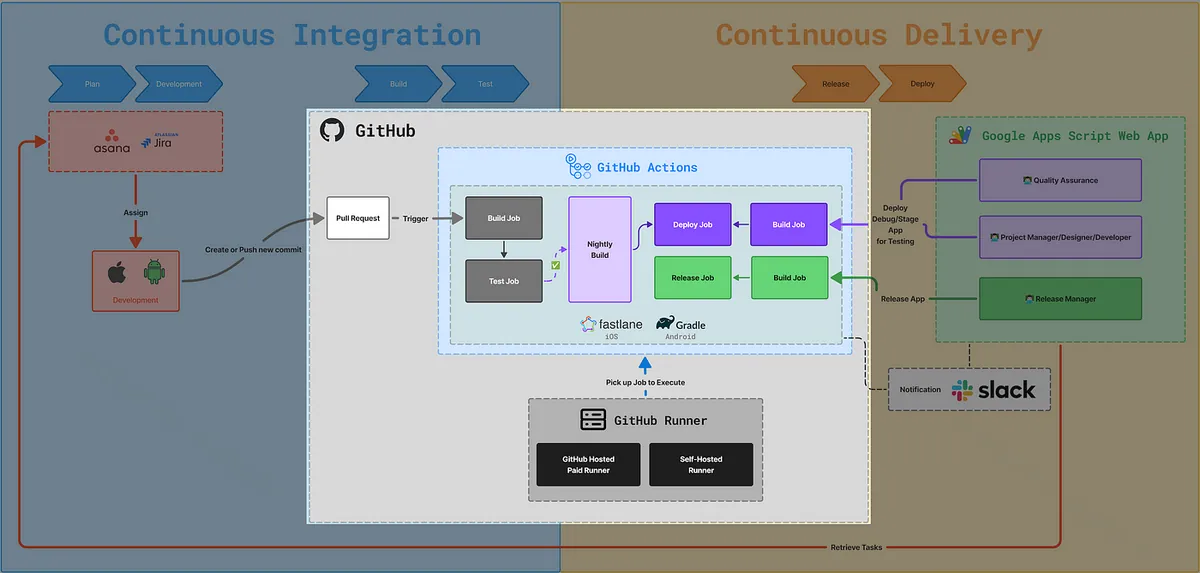
{:target="_blank"}](/assets/4b001d2e8440/1*5gnQYdVAOtGR-bMK4ZrOhA.webp)
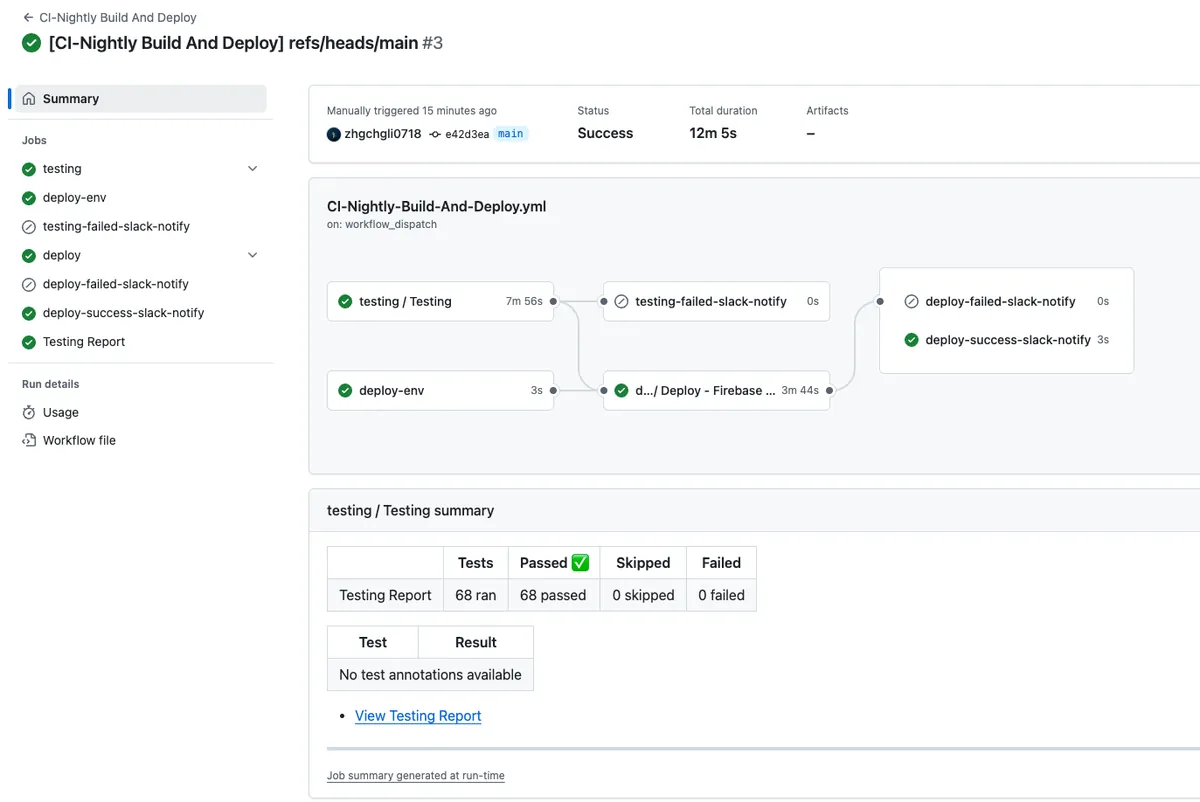
{:target="_blank"}](/assets/4b001d2e8440/1*t9PrQfcTANyvG7gfXXC-bw.webp)
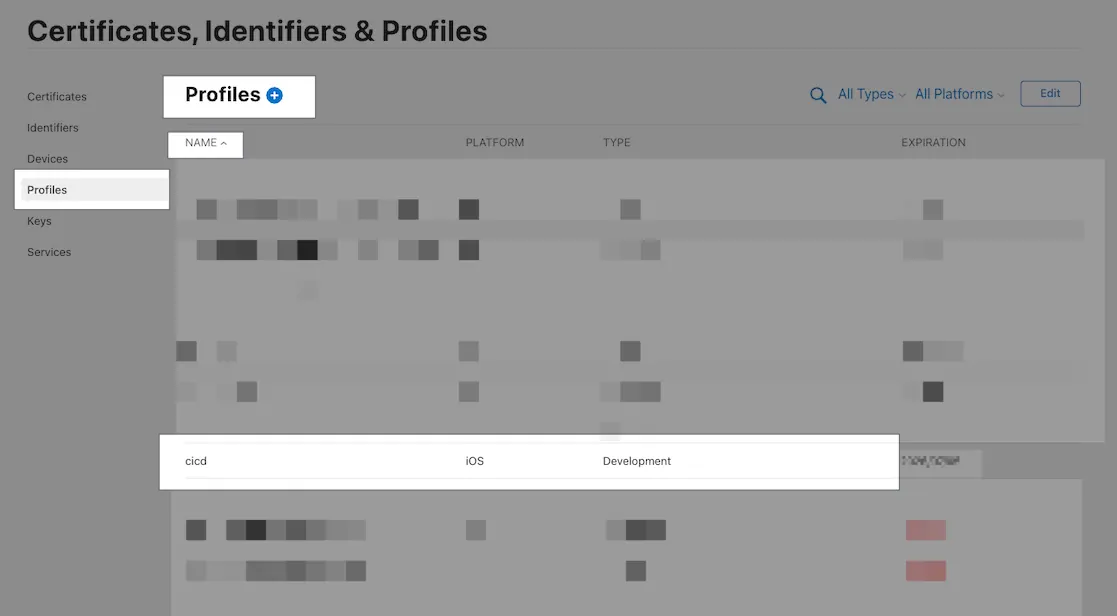
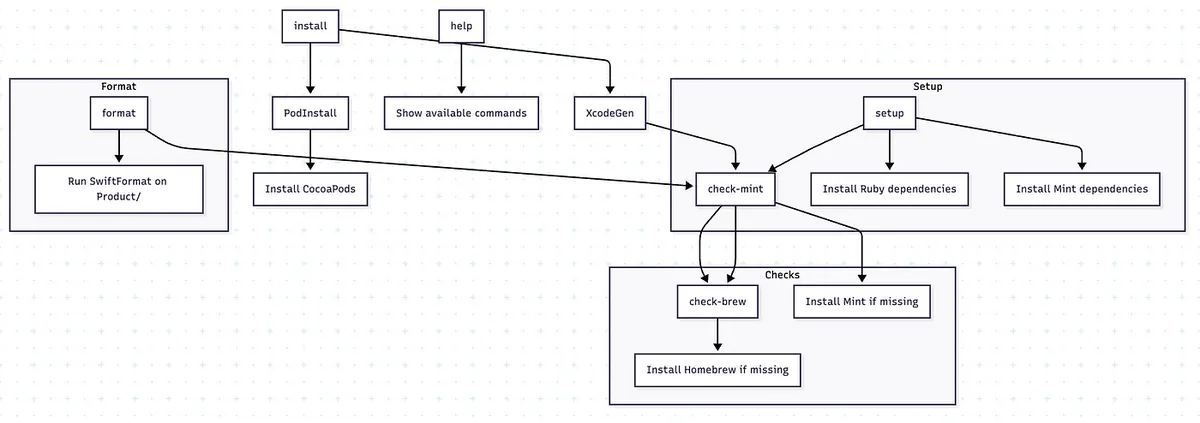

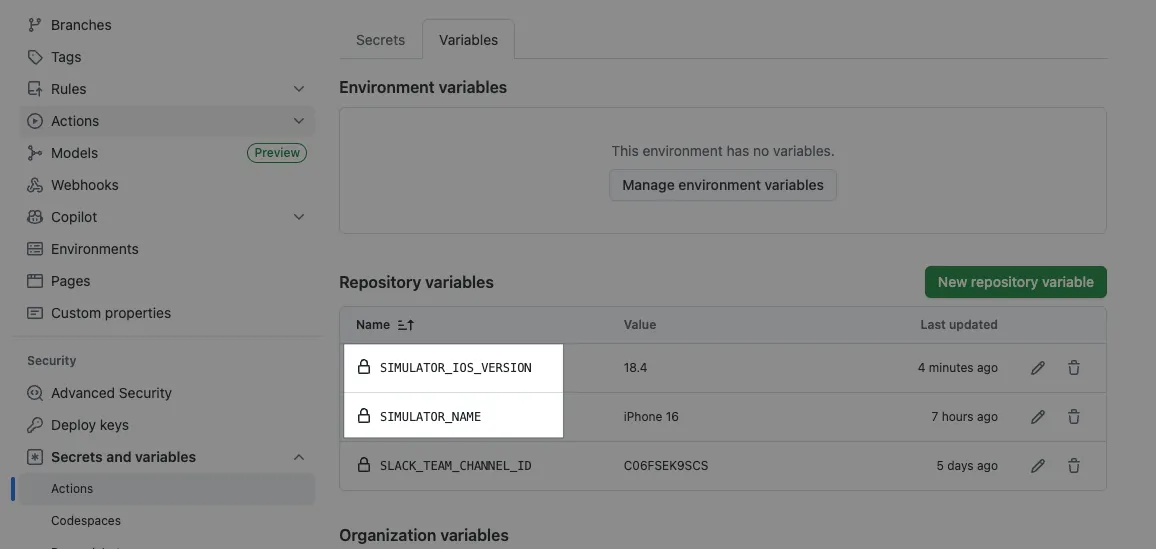
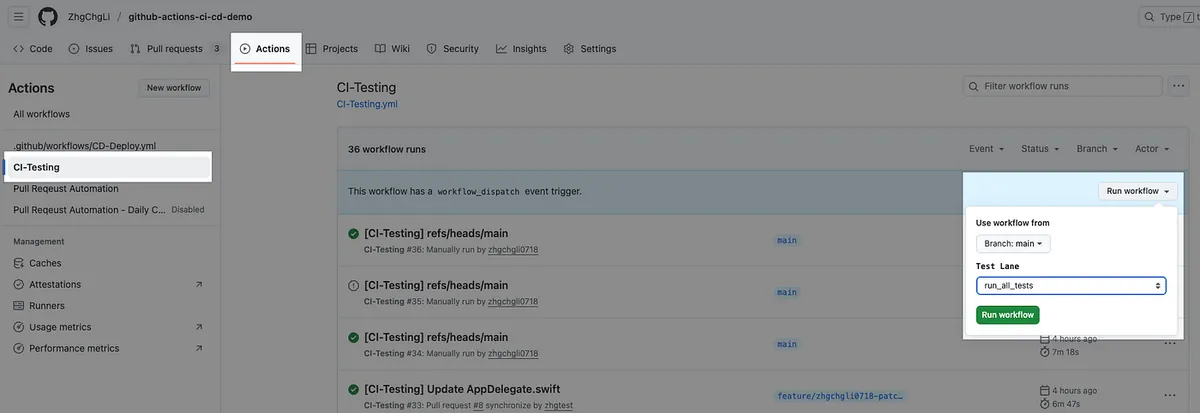
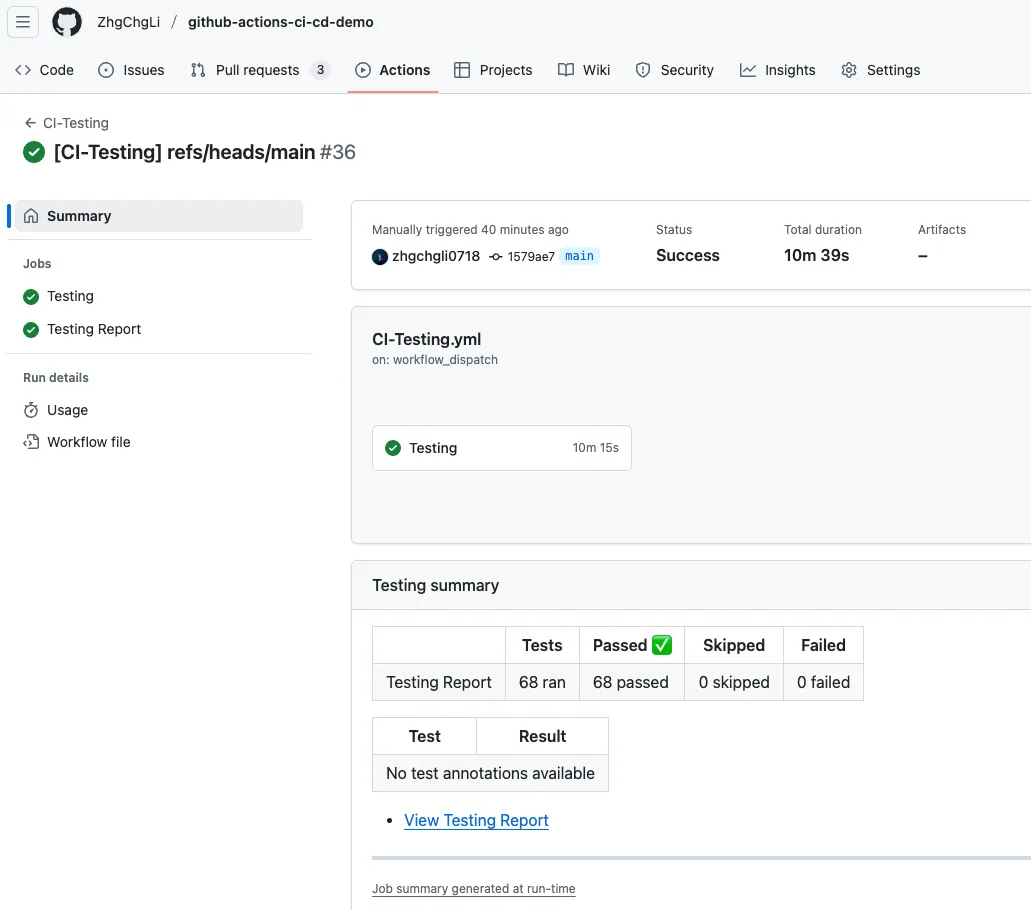
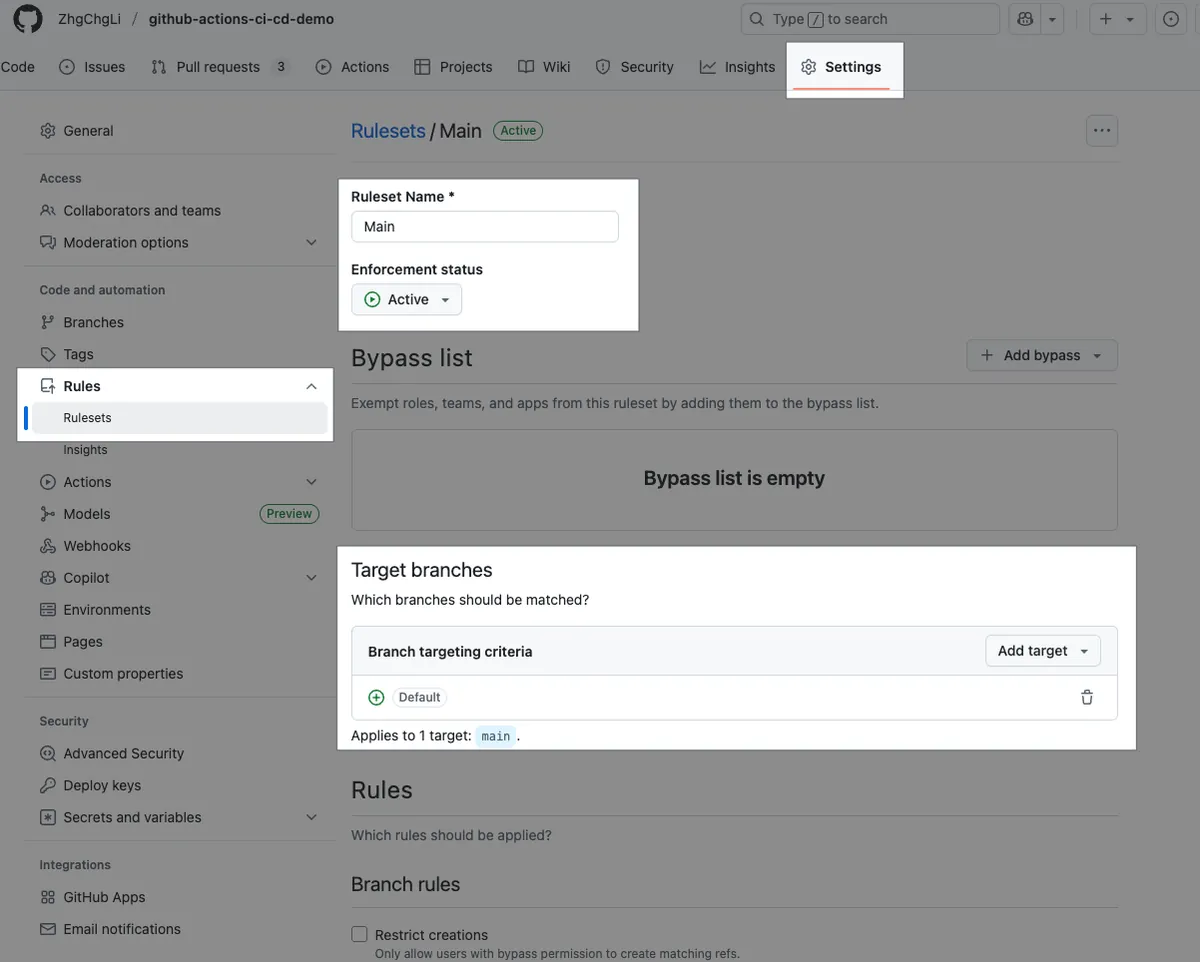
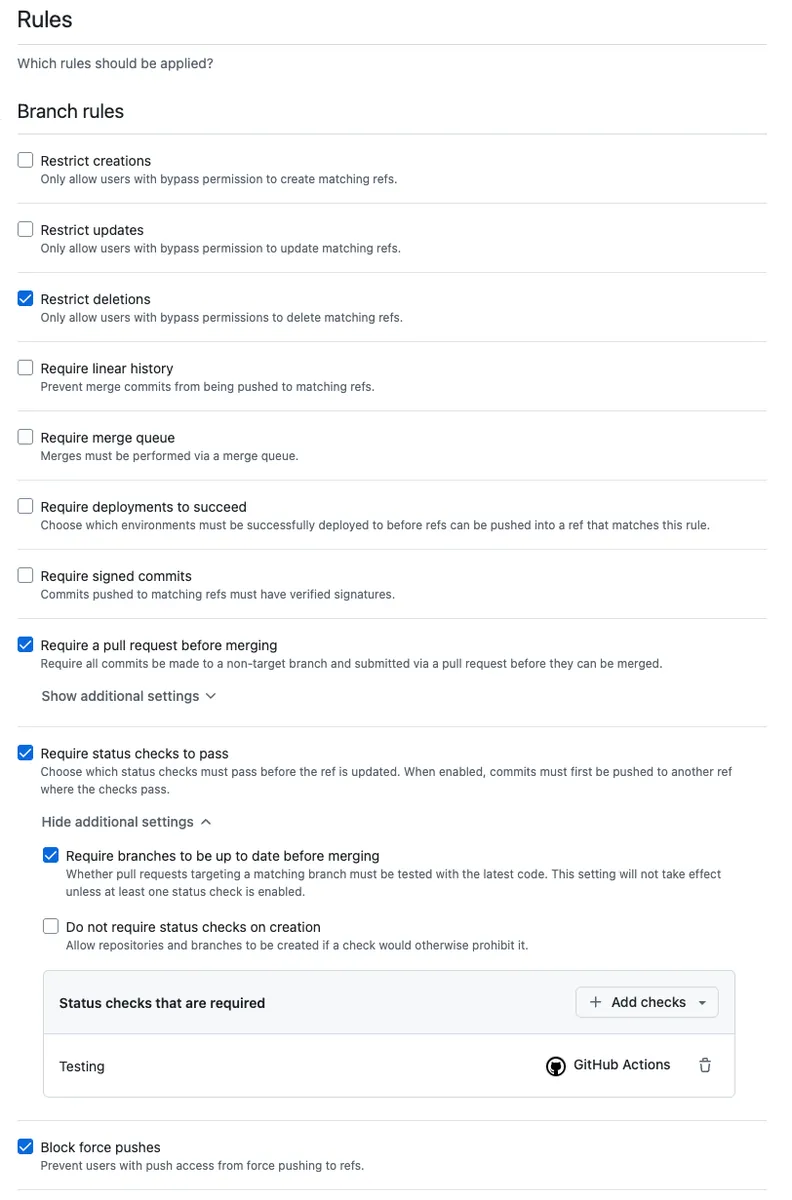
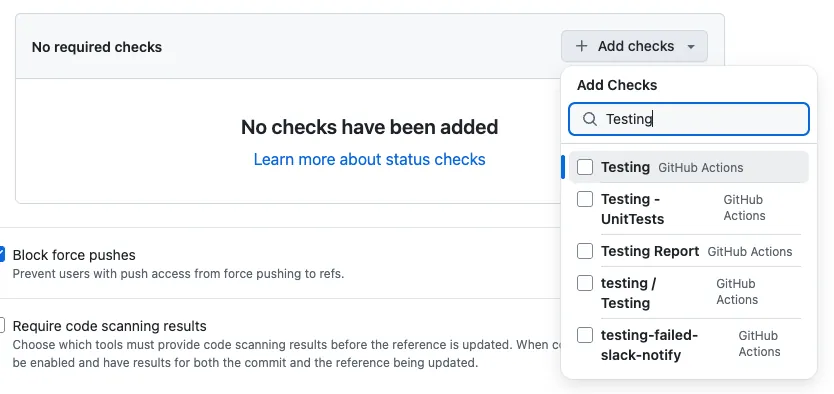
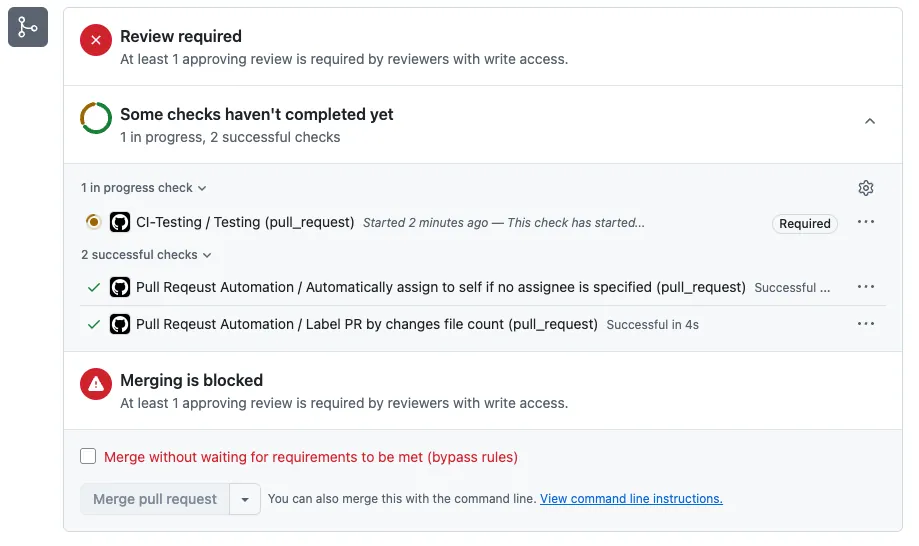

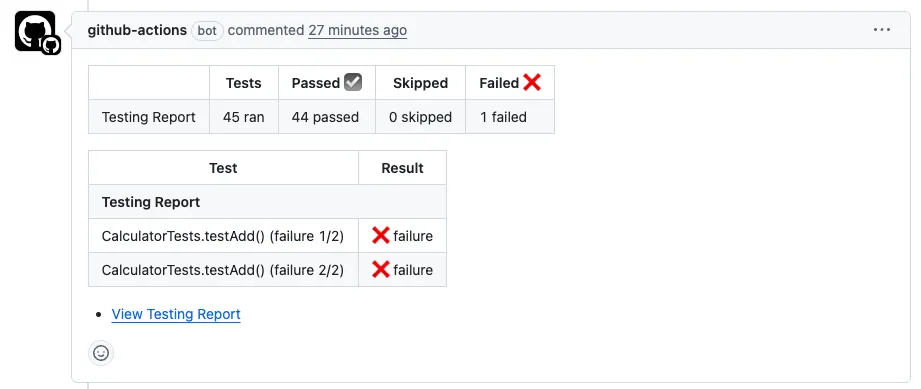
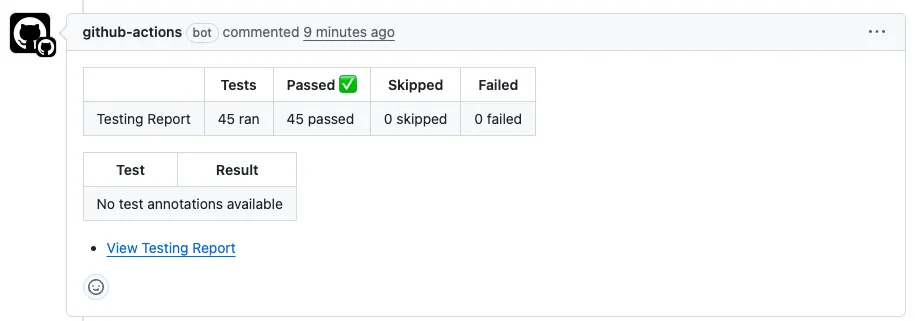

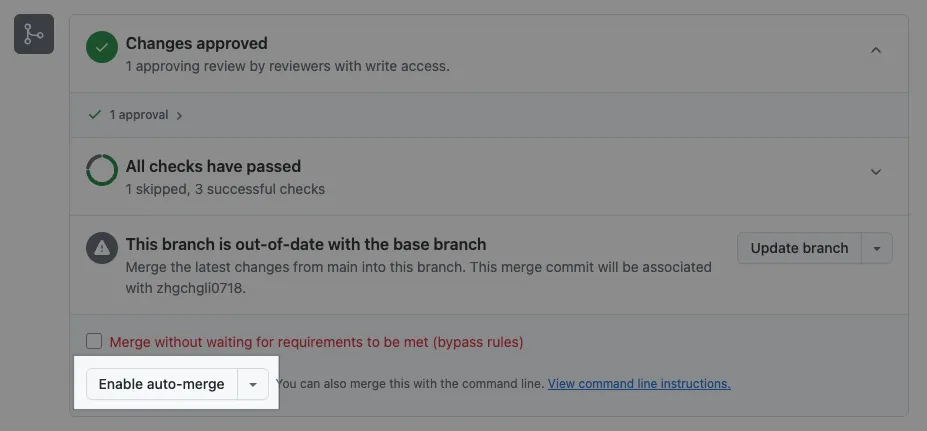
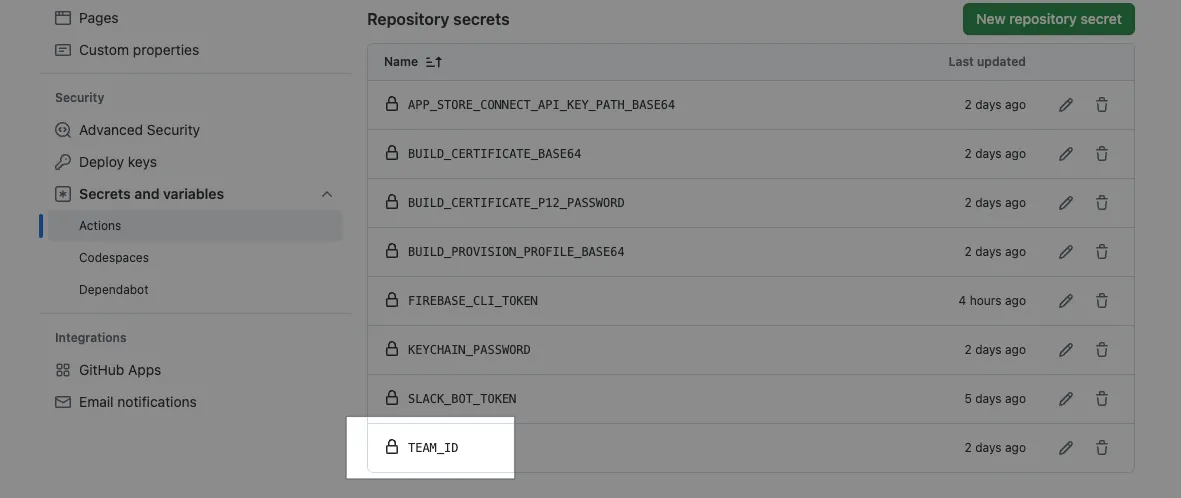
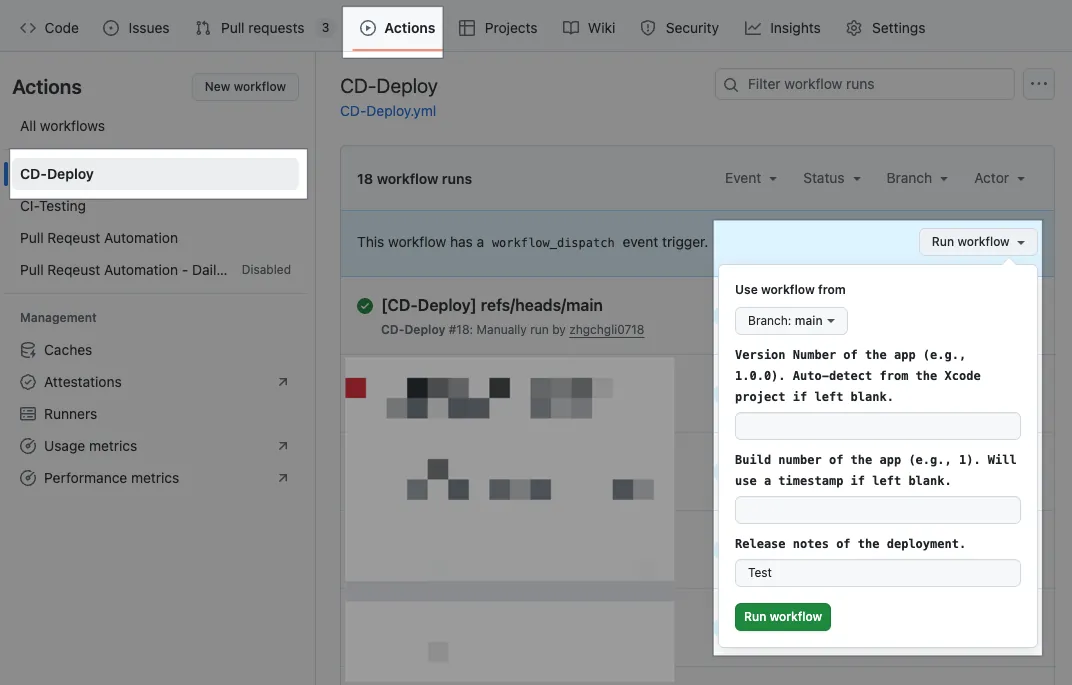
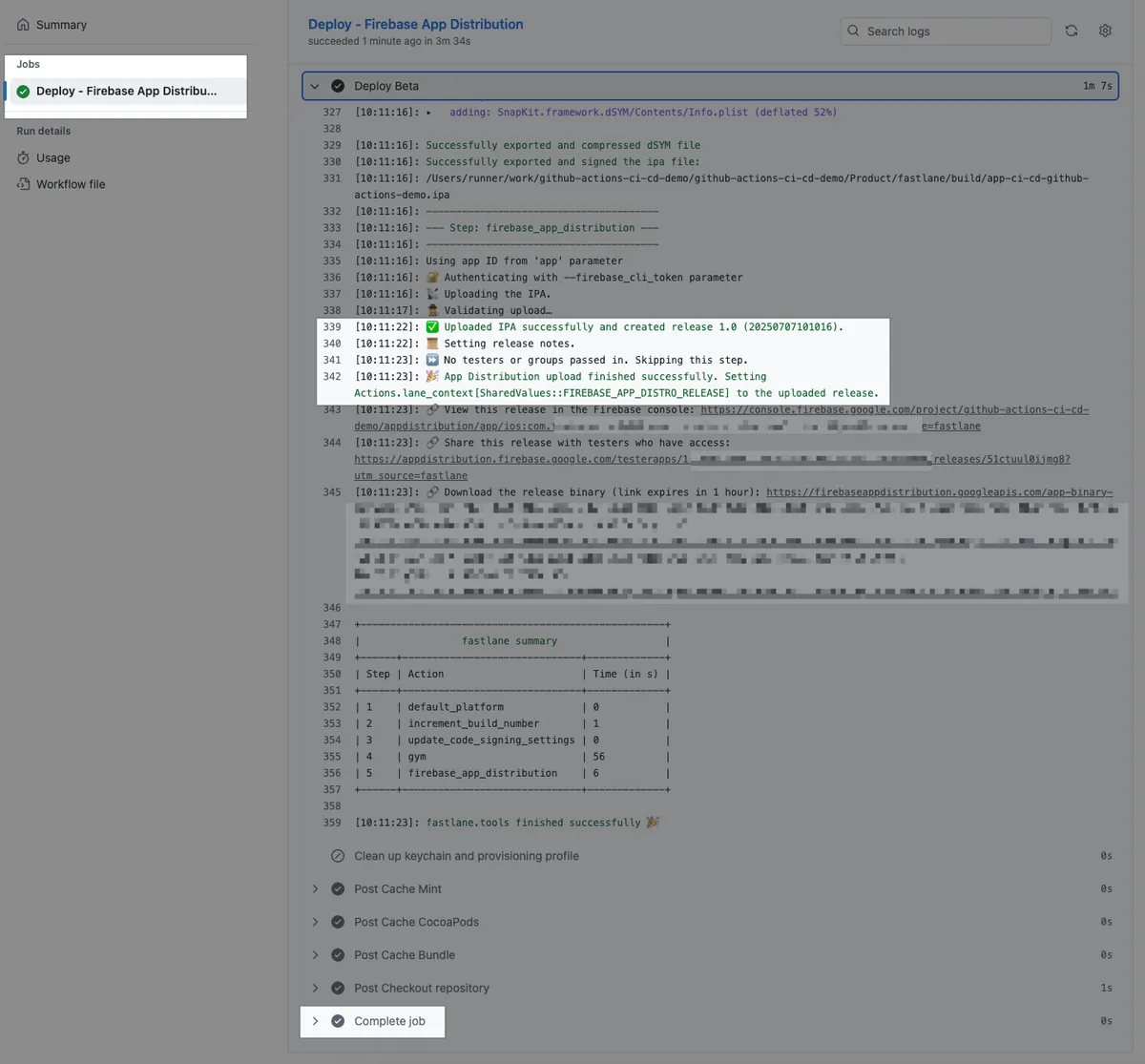
{:target="_blank"}](/assets/4b001d2e8440/1*W8PBkatfsITMDFSlp7xpjg.webp)
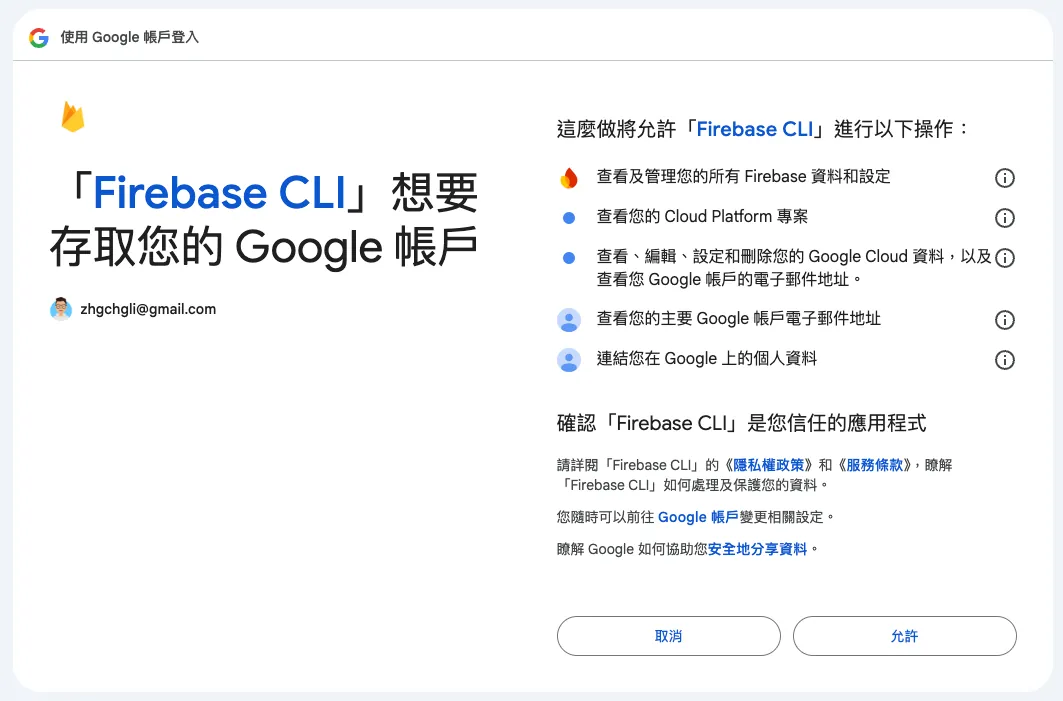
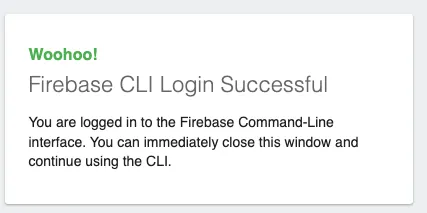
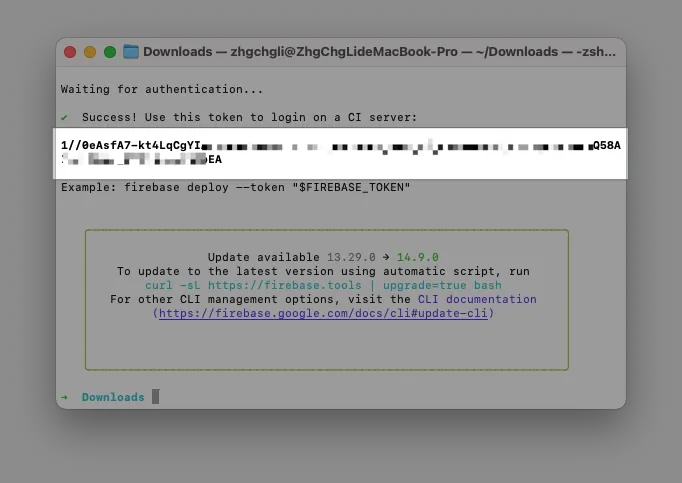
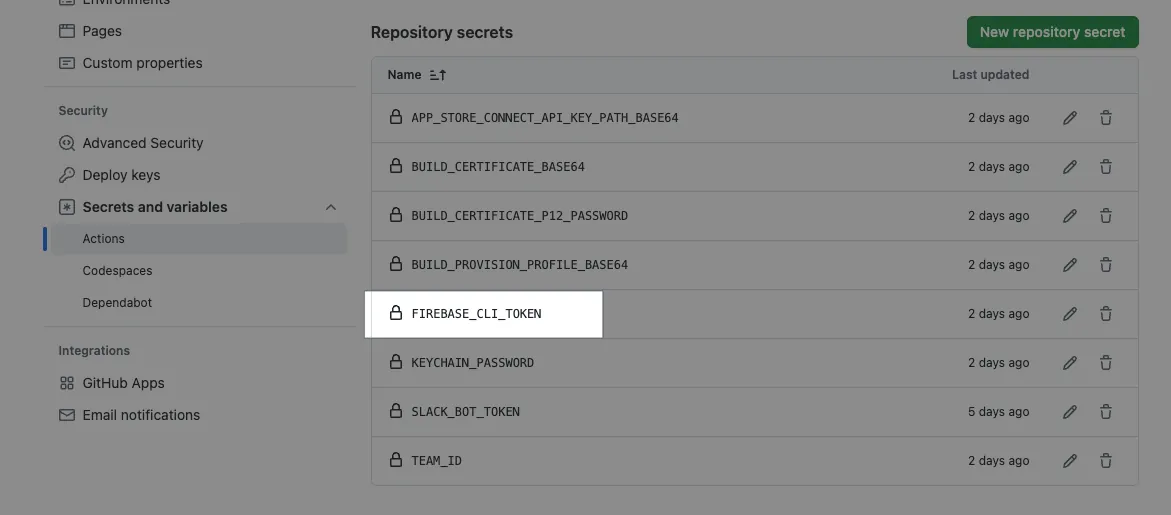
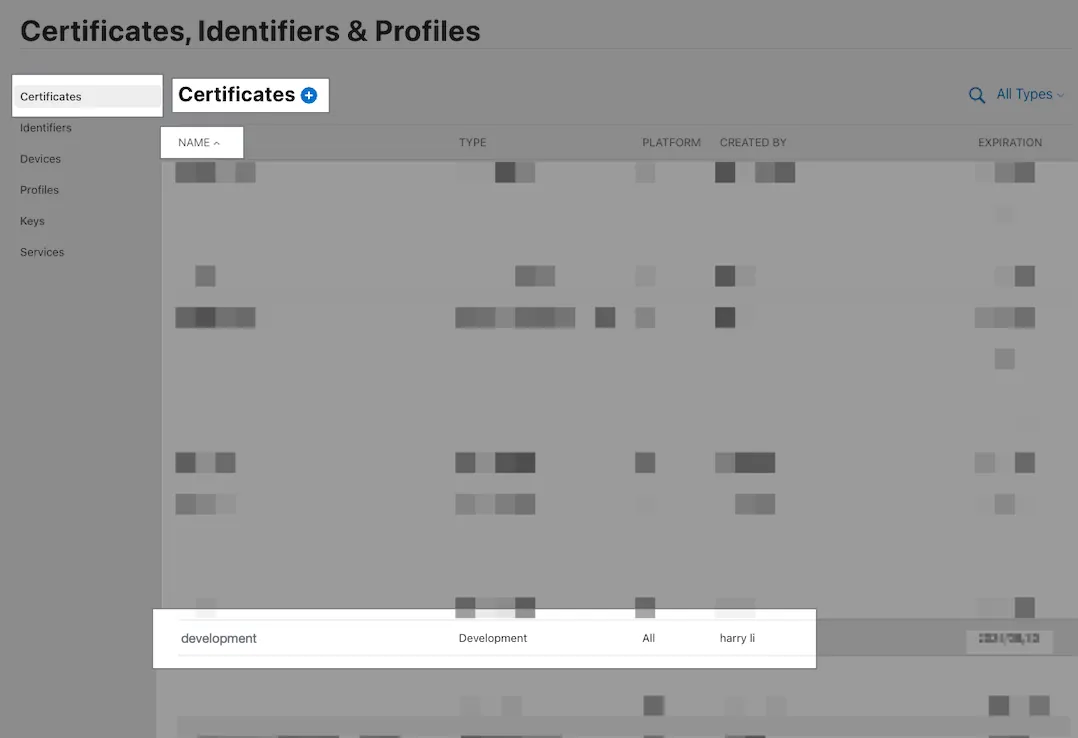
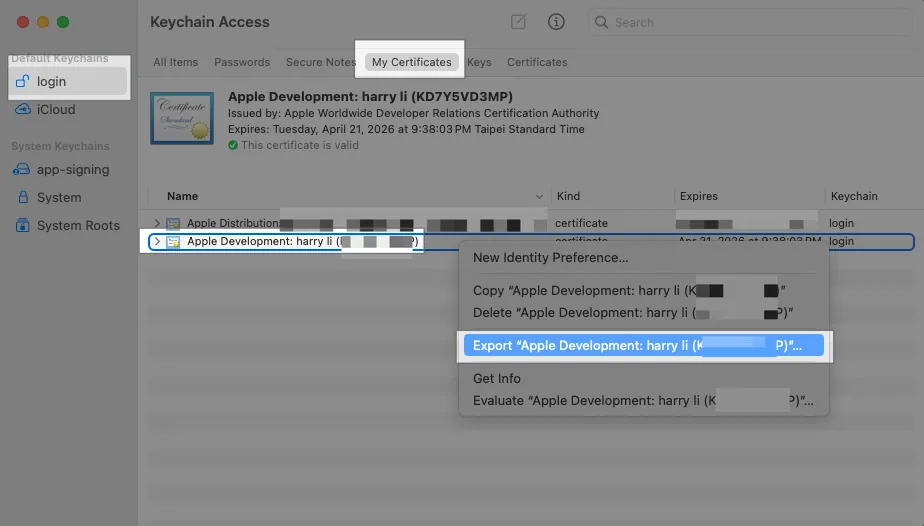
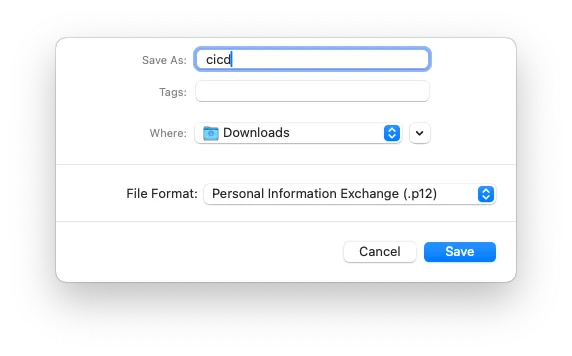
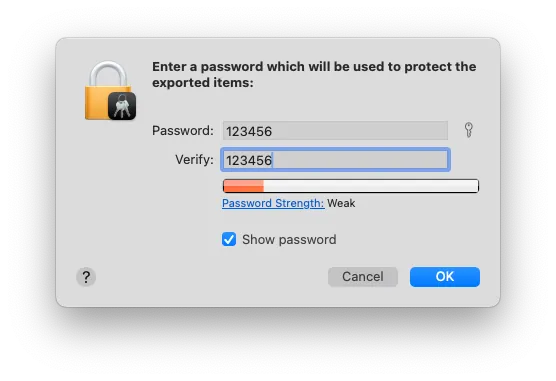
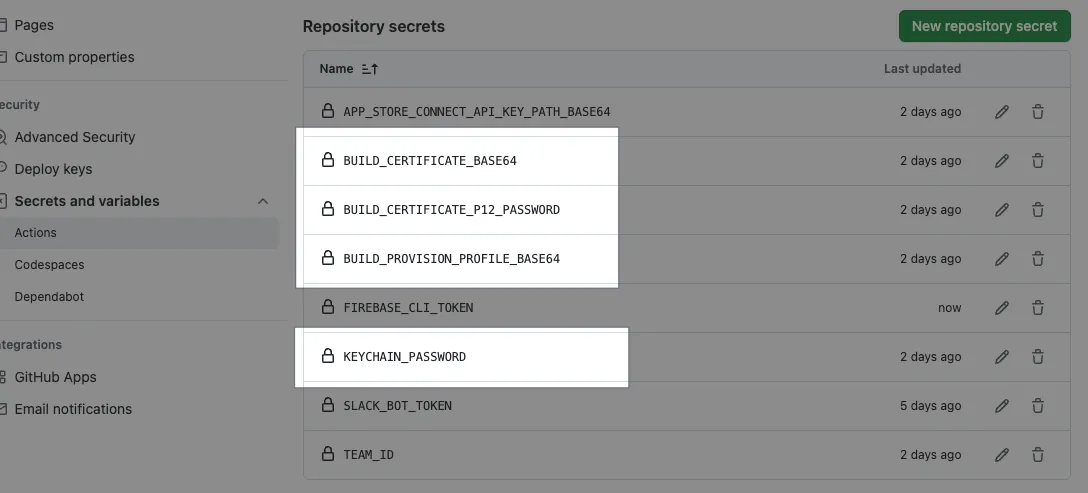
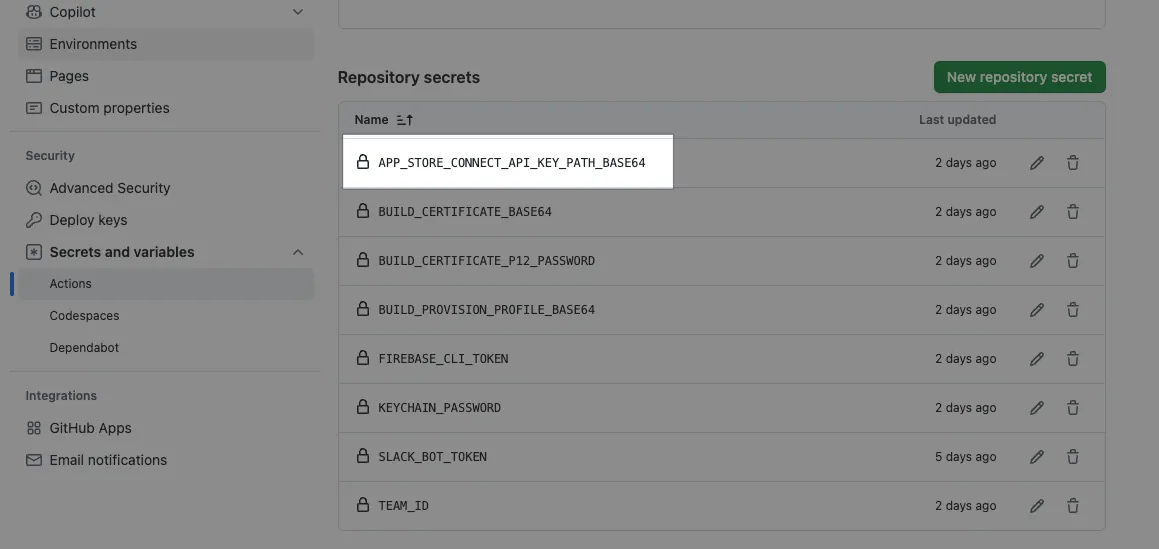
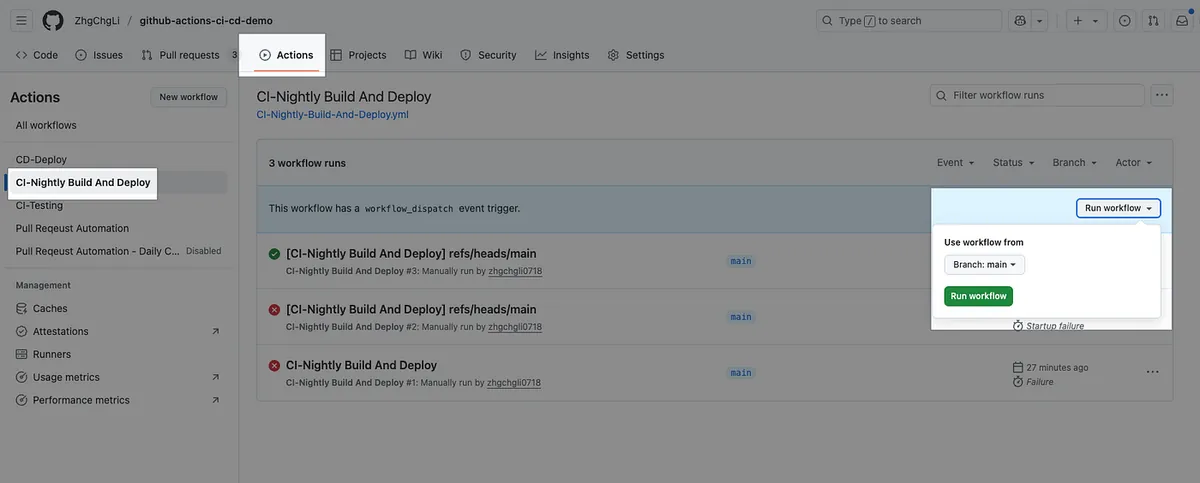

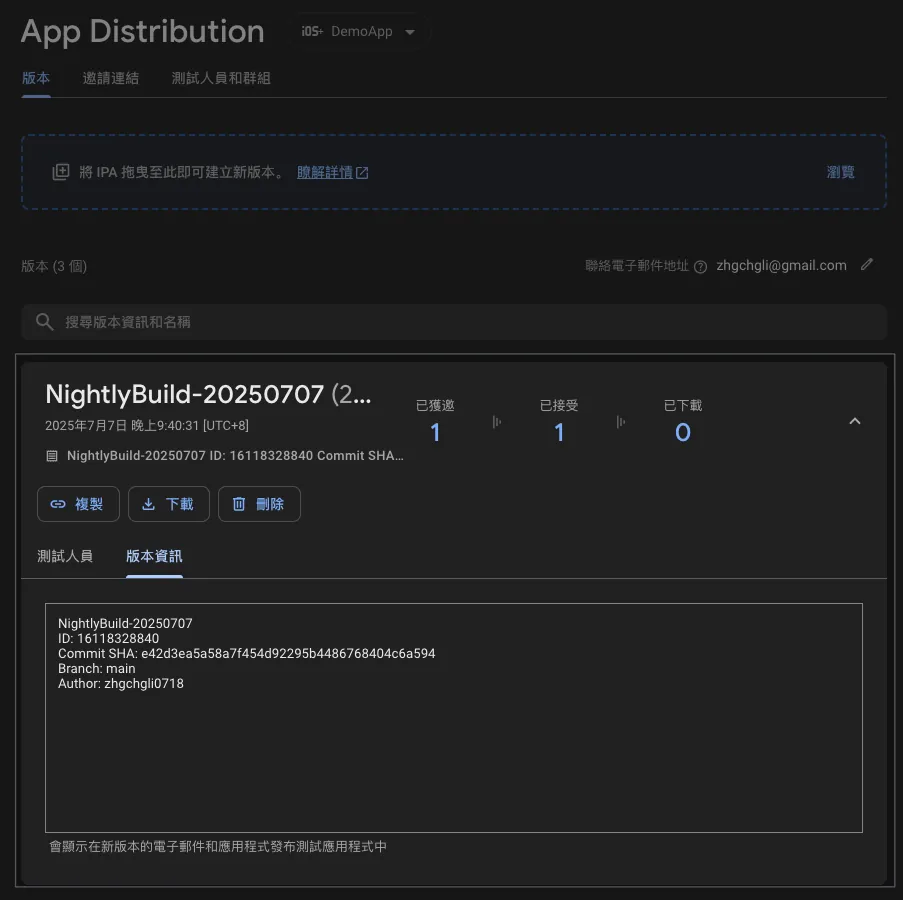
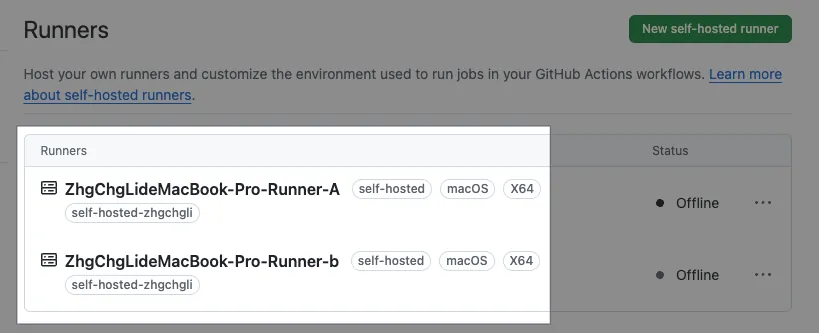
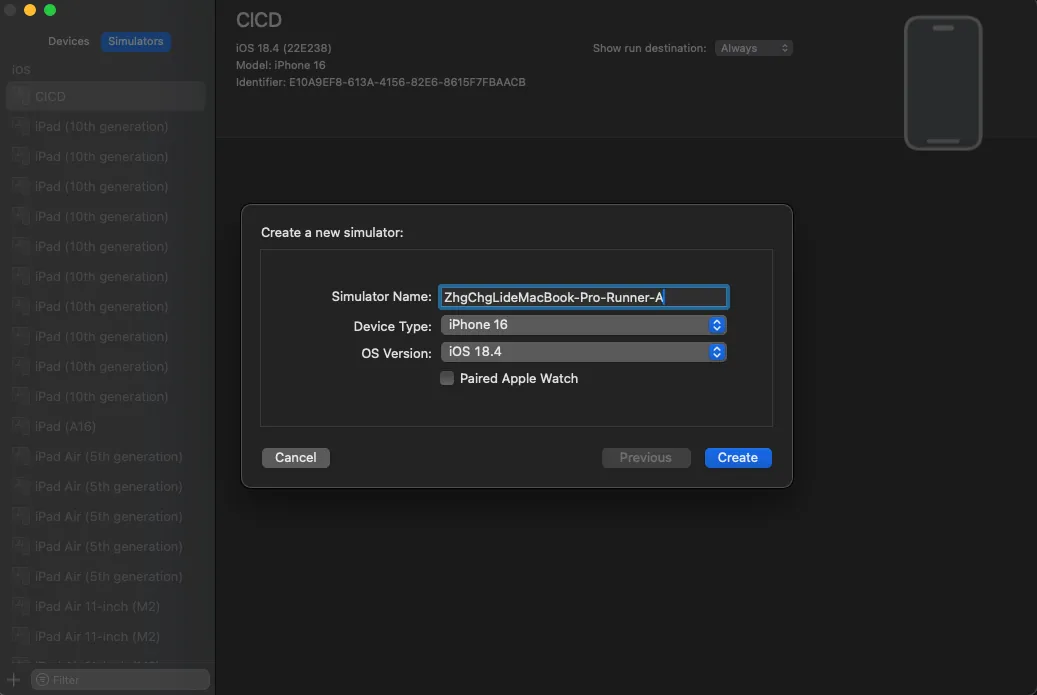
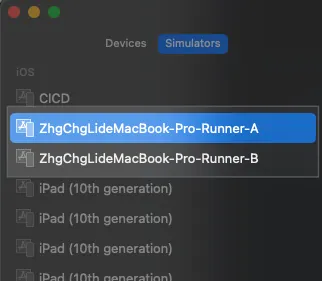
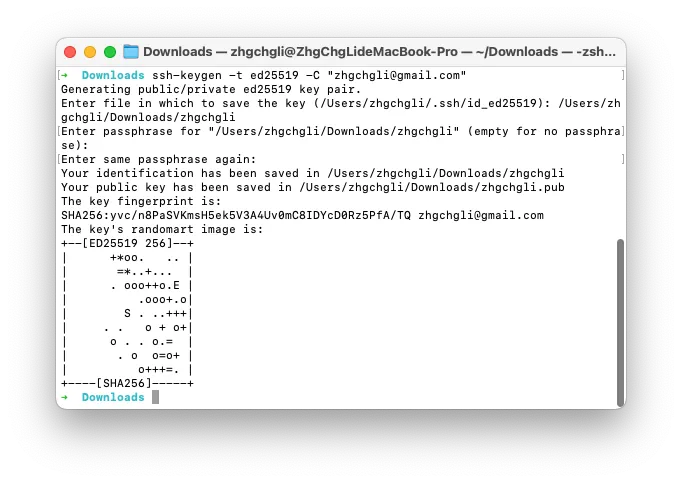

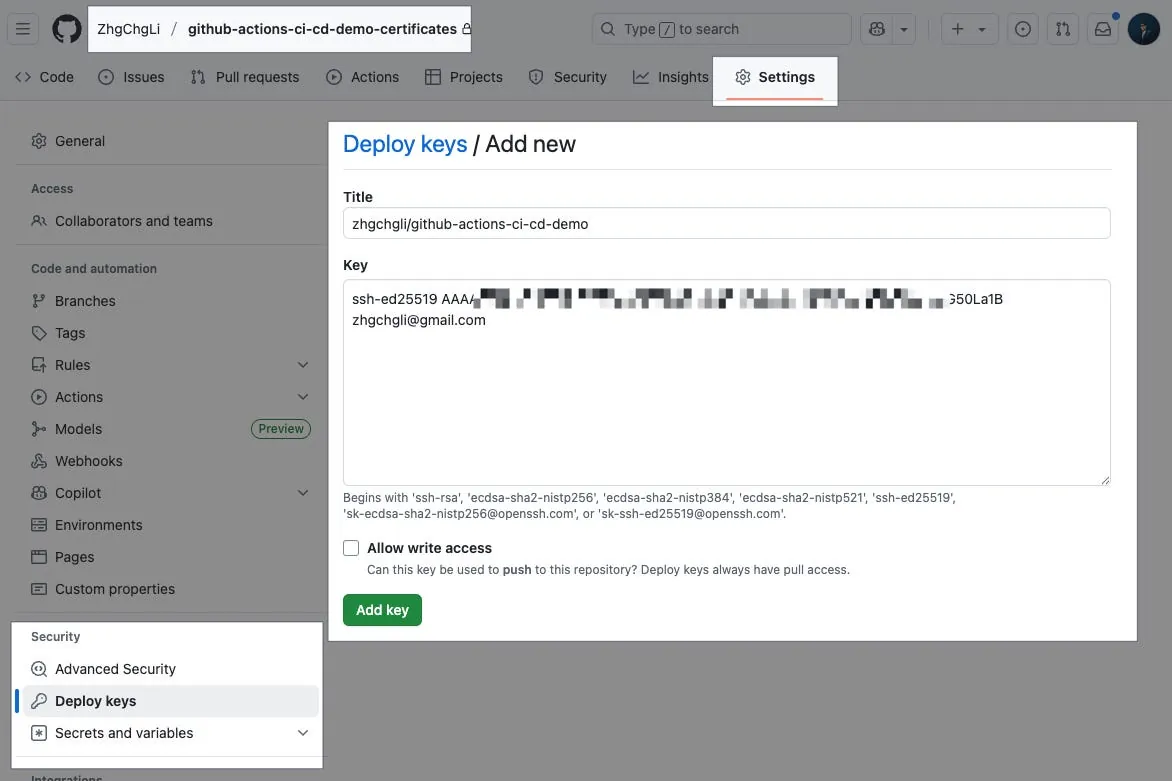
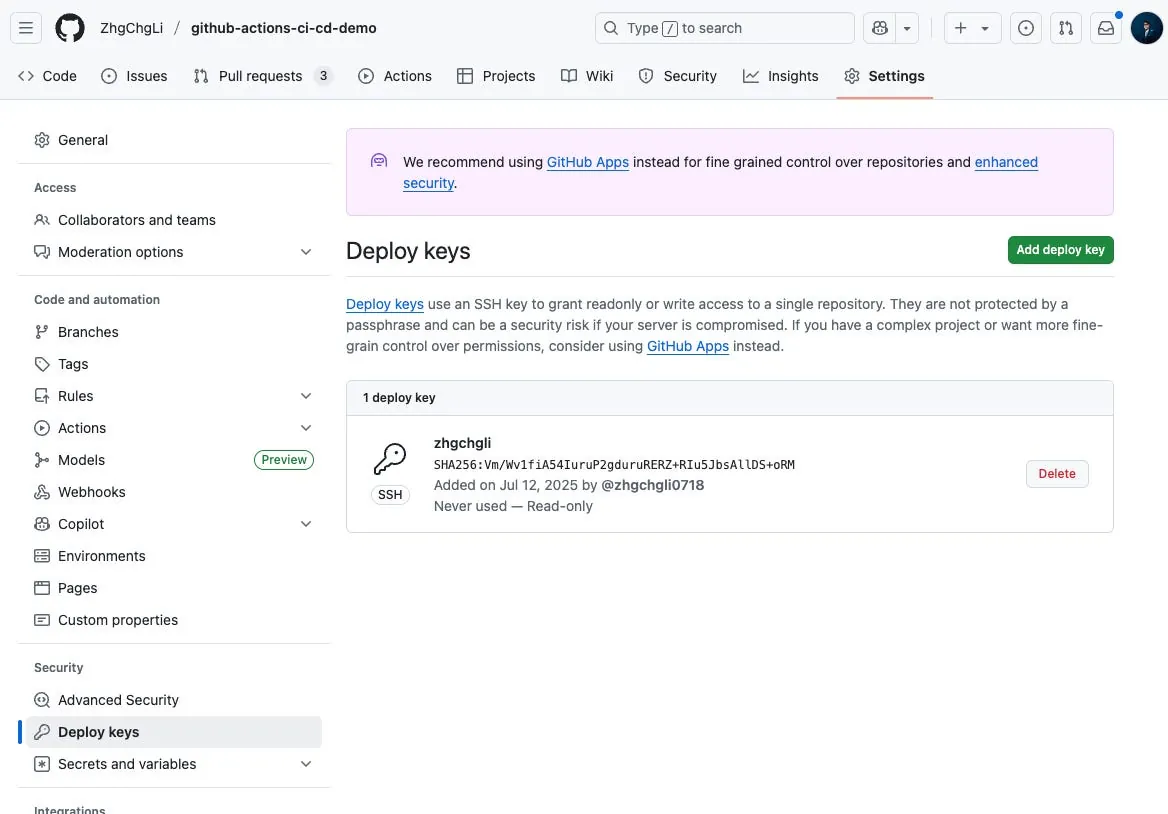
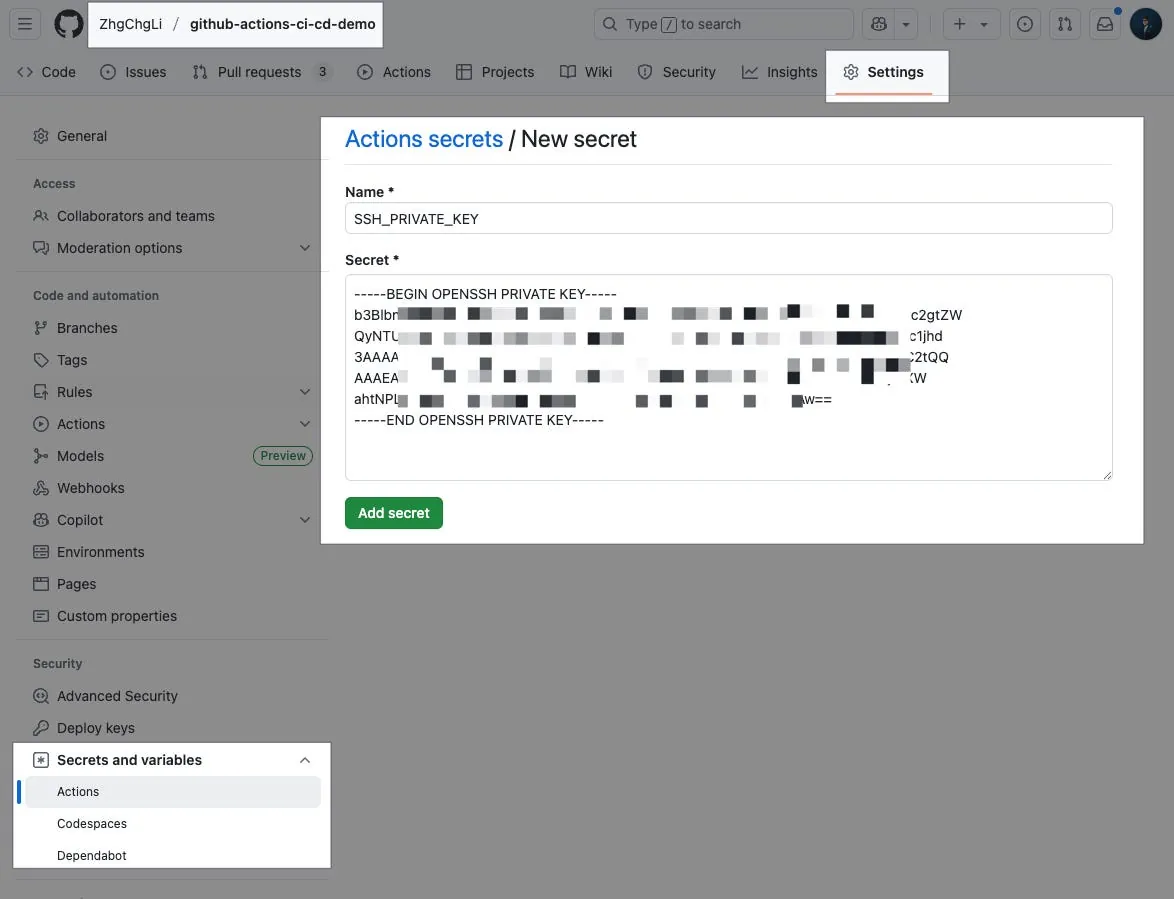
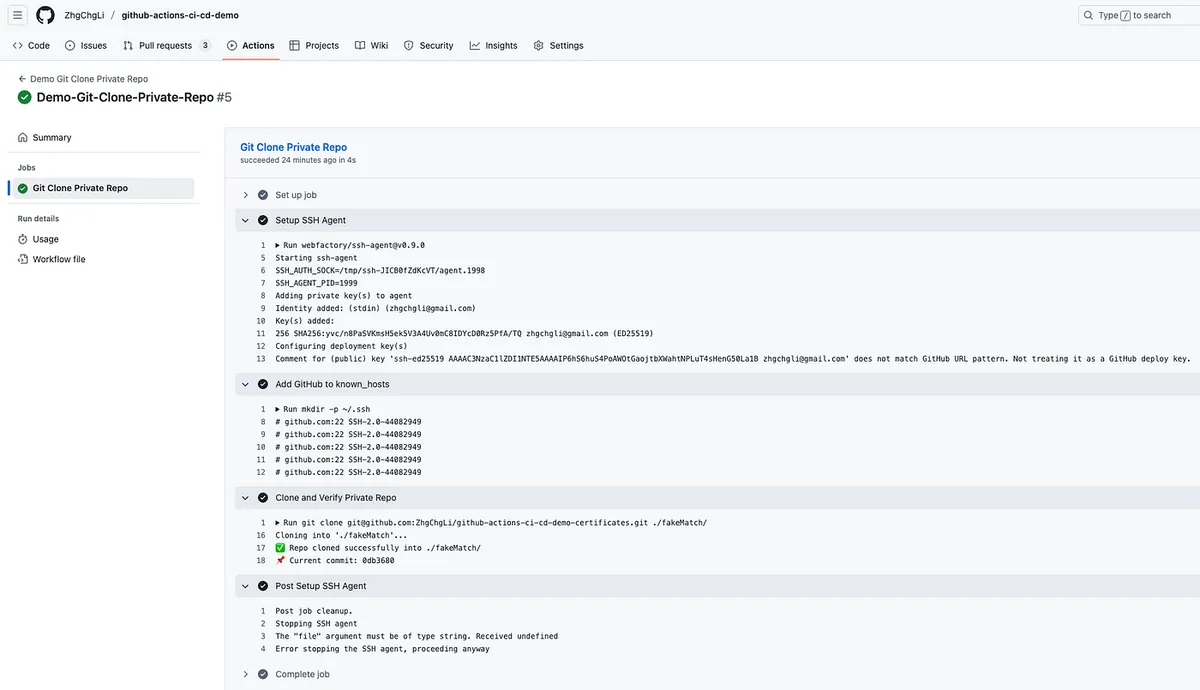
{:target="_blank"}](/assets/4b001d2e8440/1*QJj54G9gOjtQS-rbHVT1SQ.webp)
